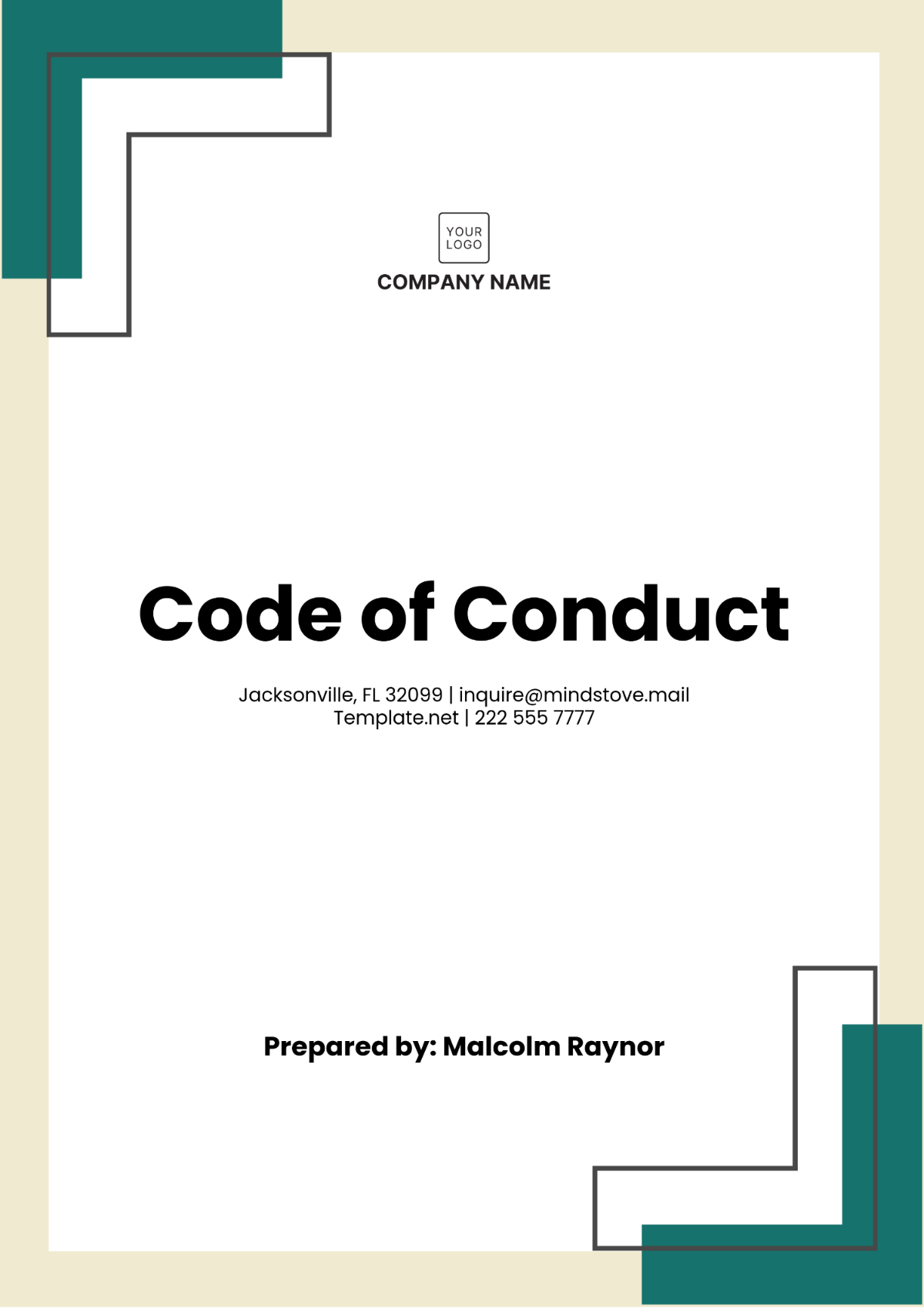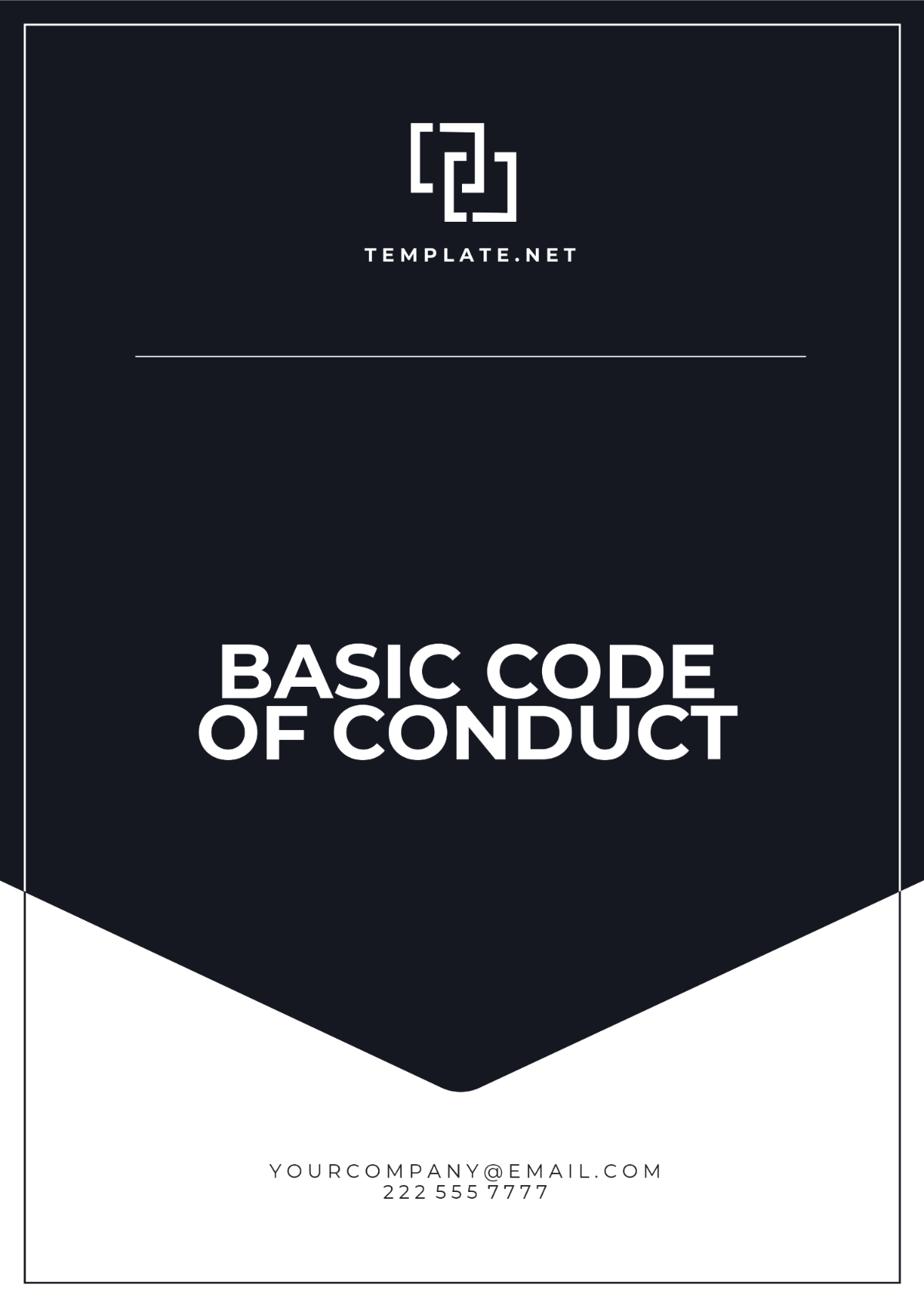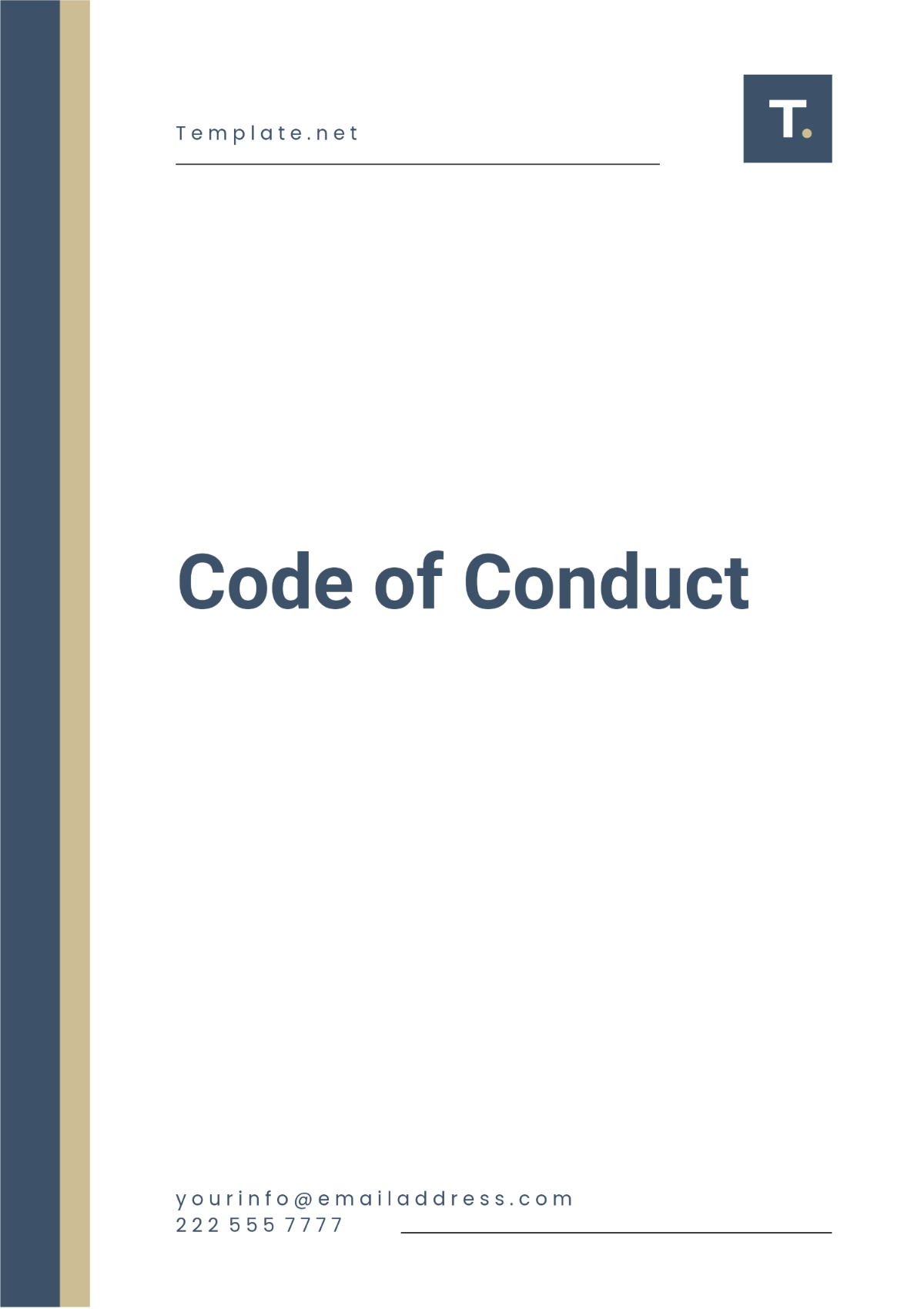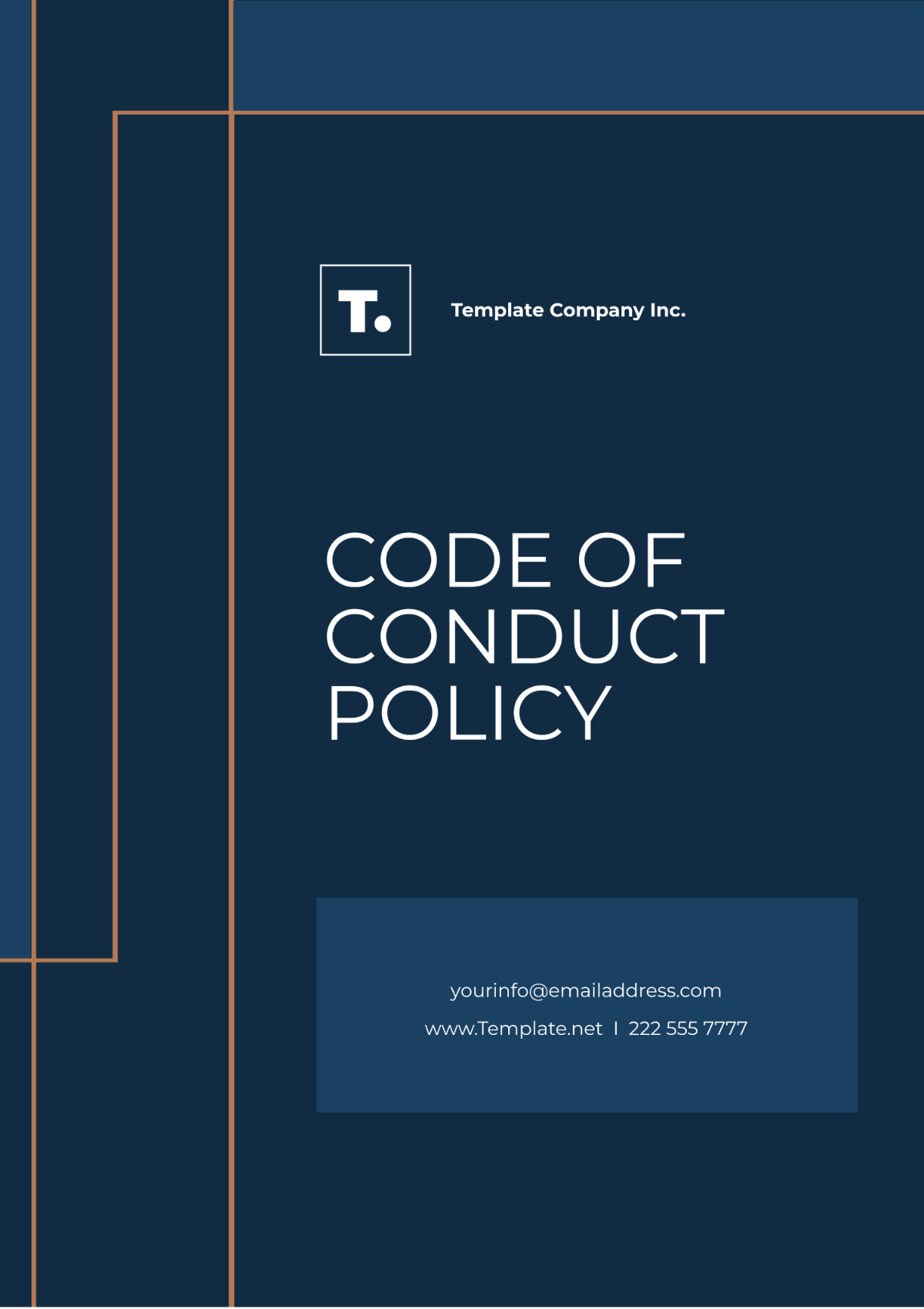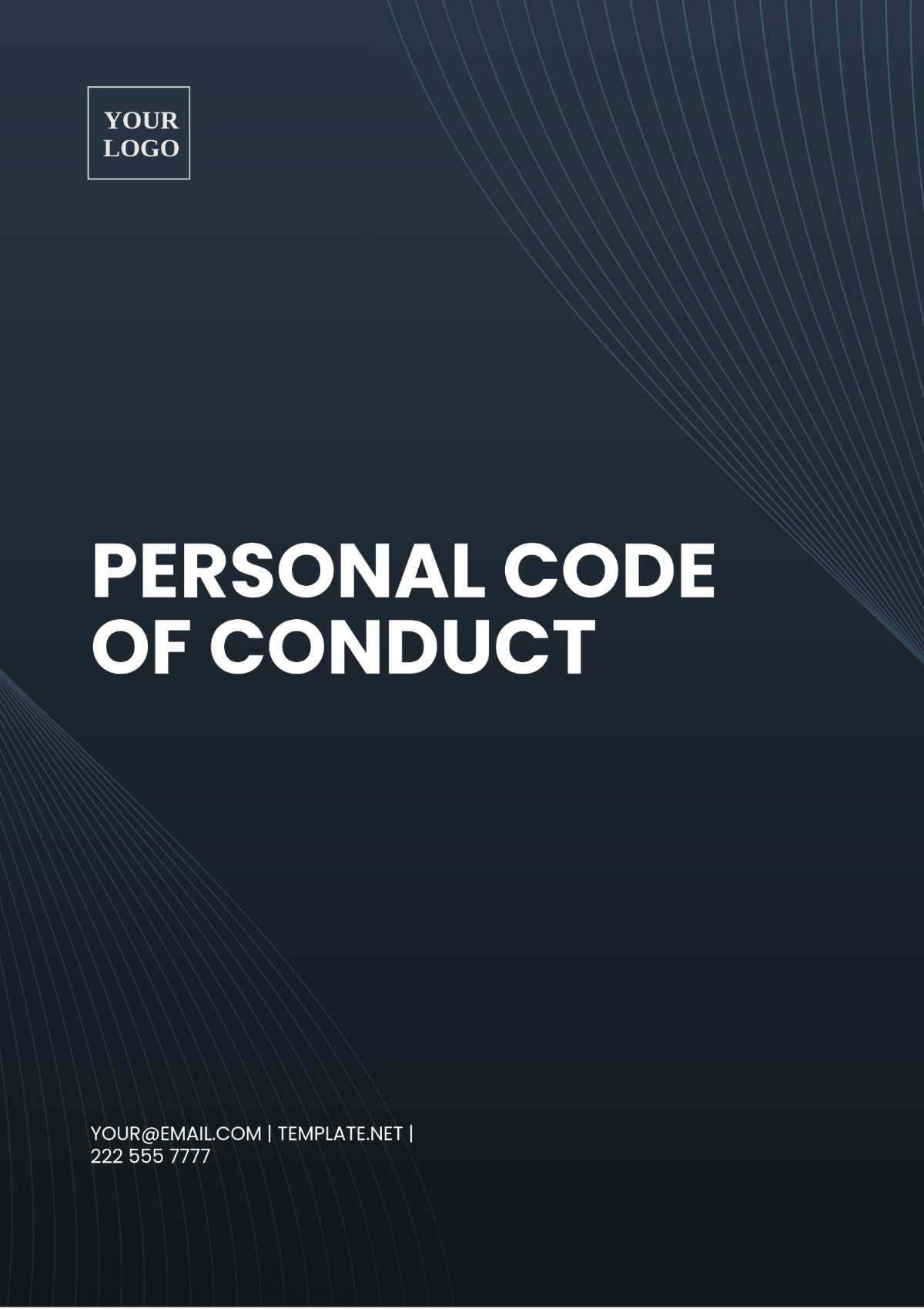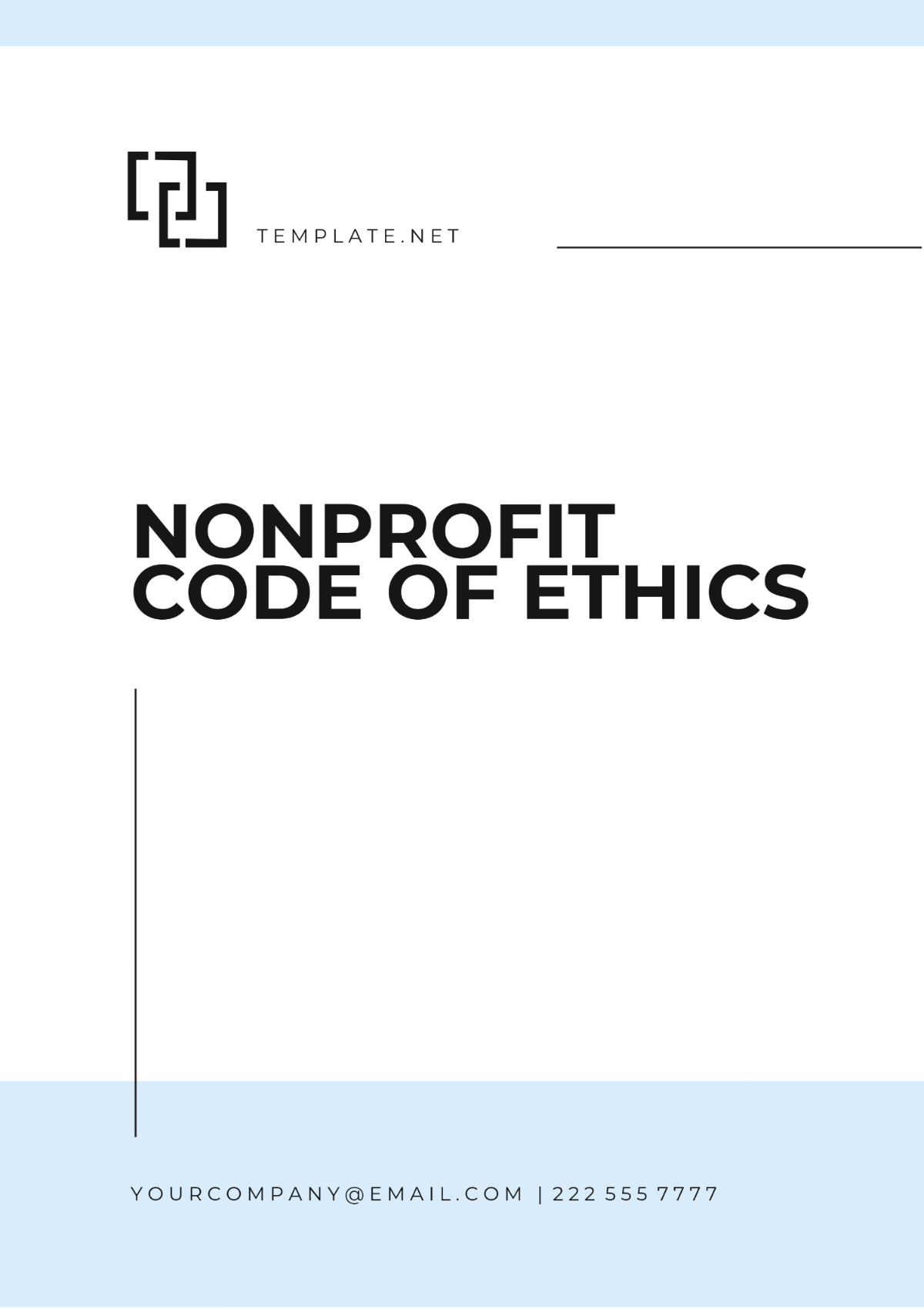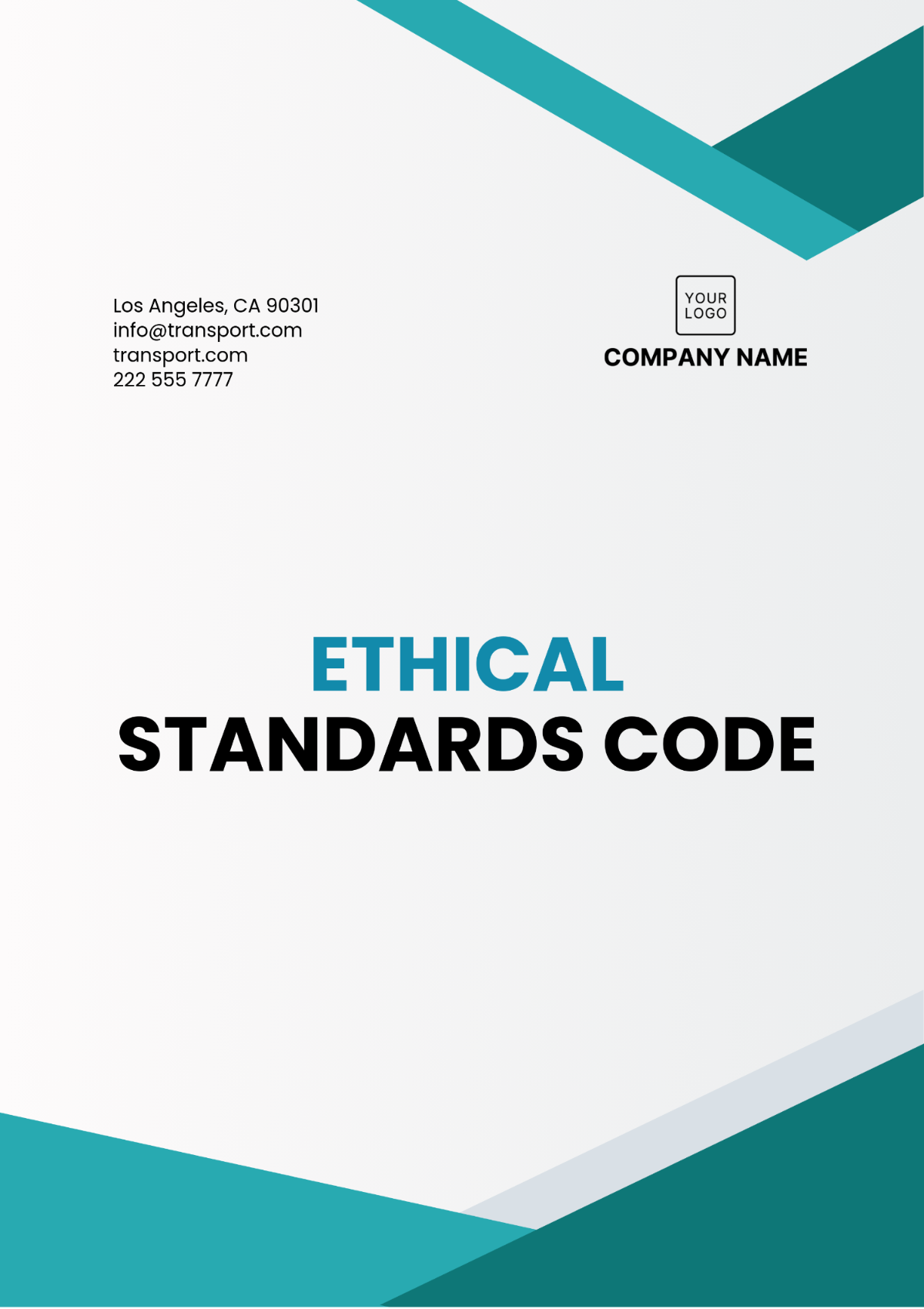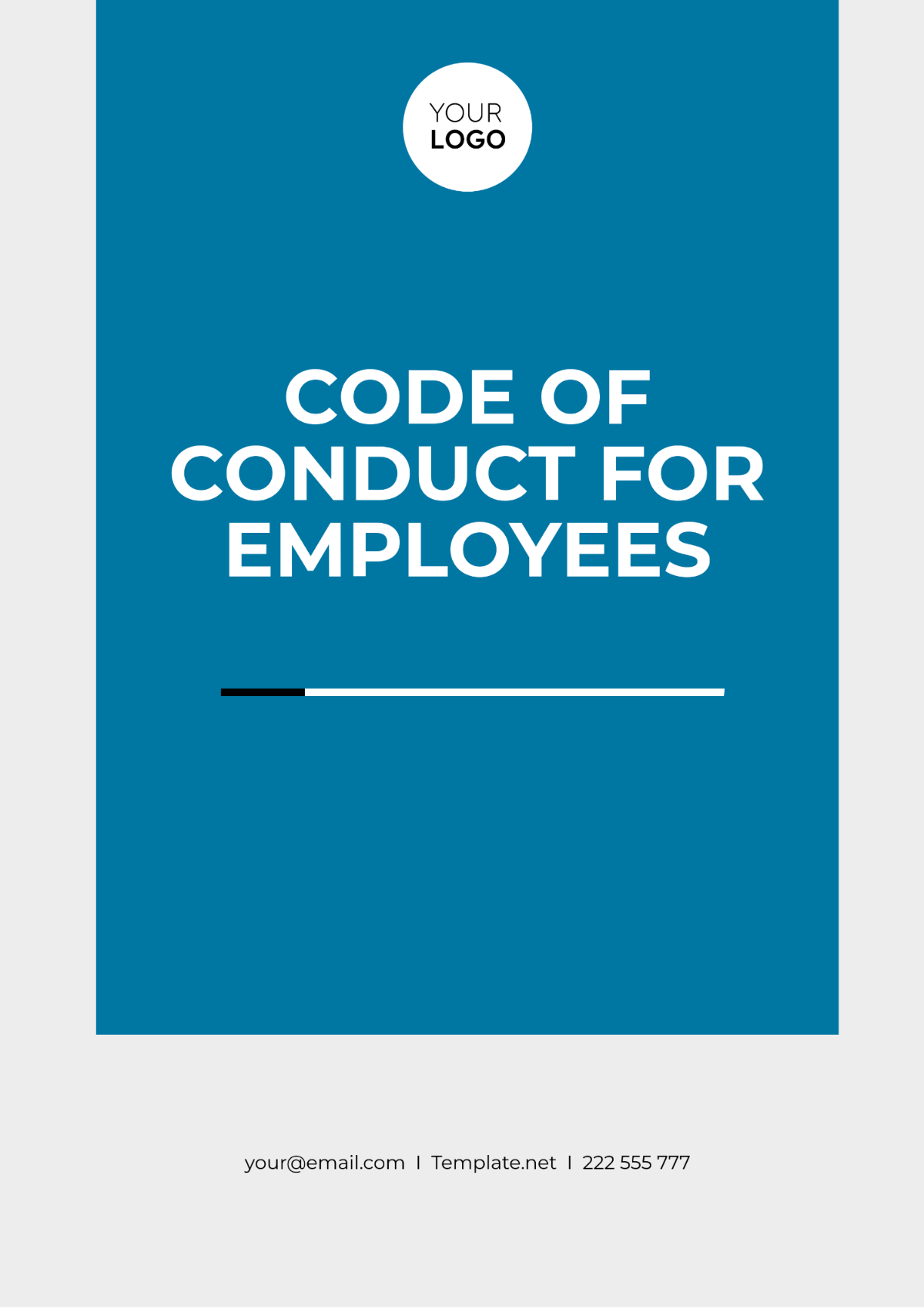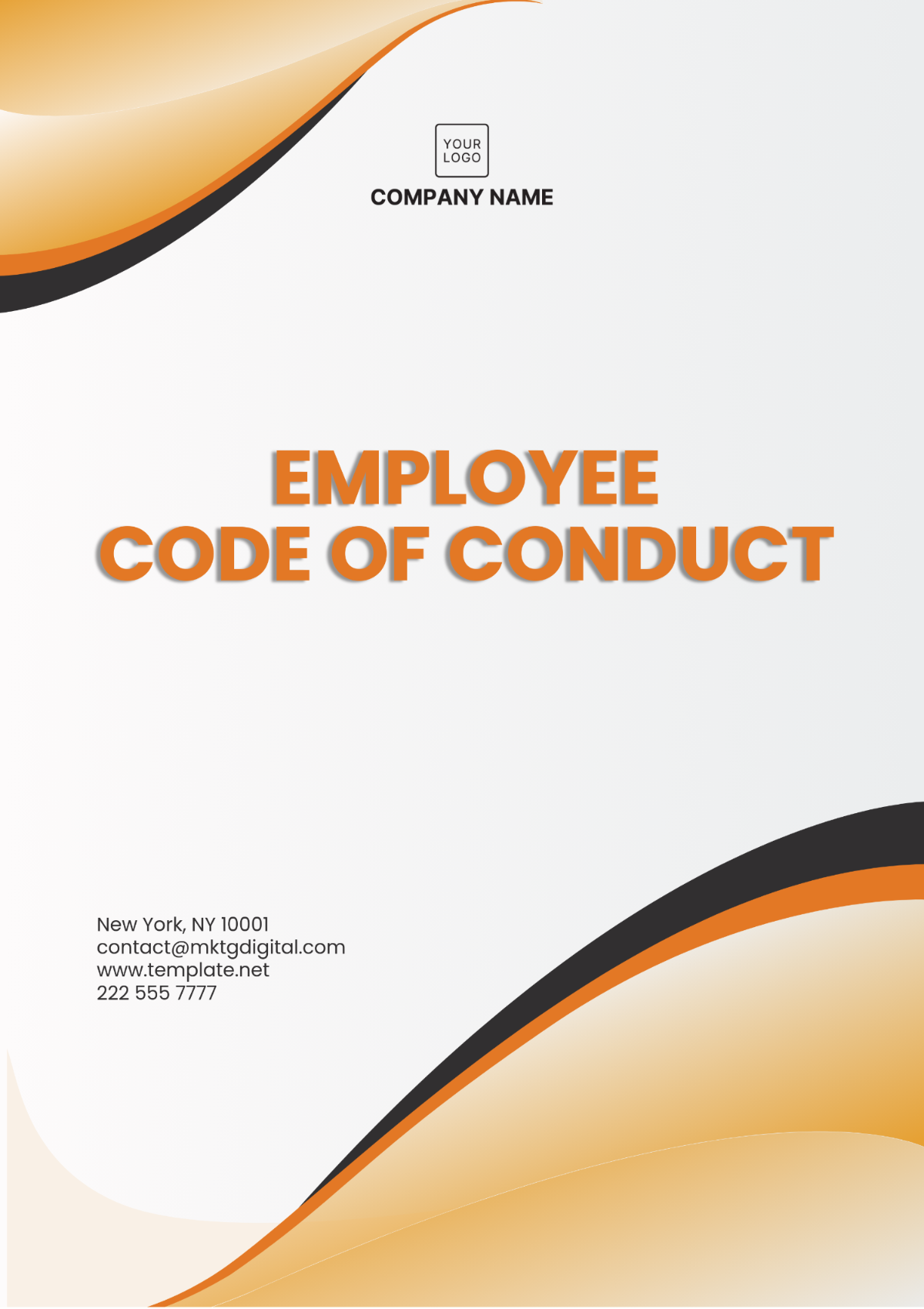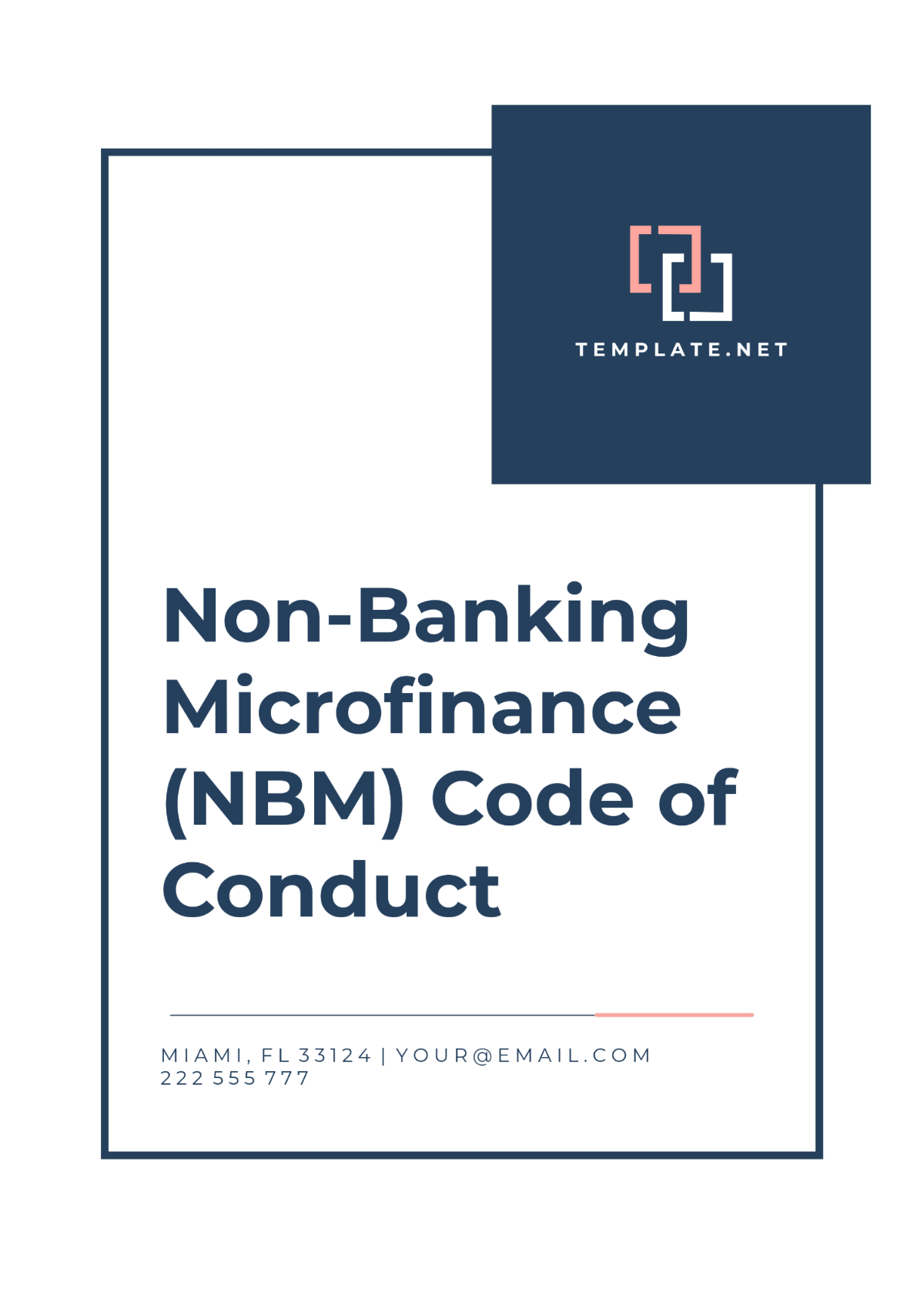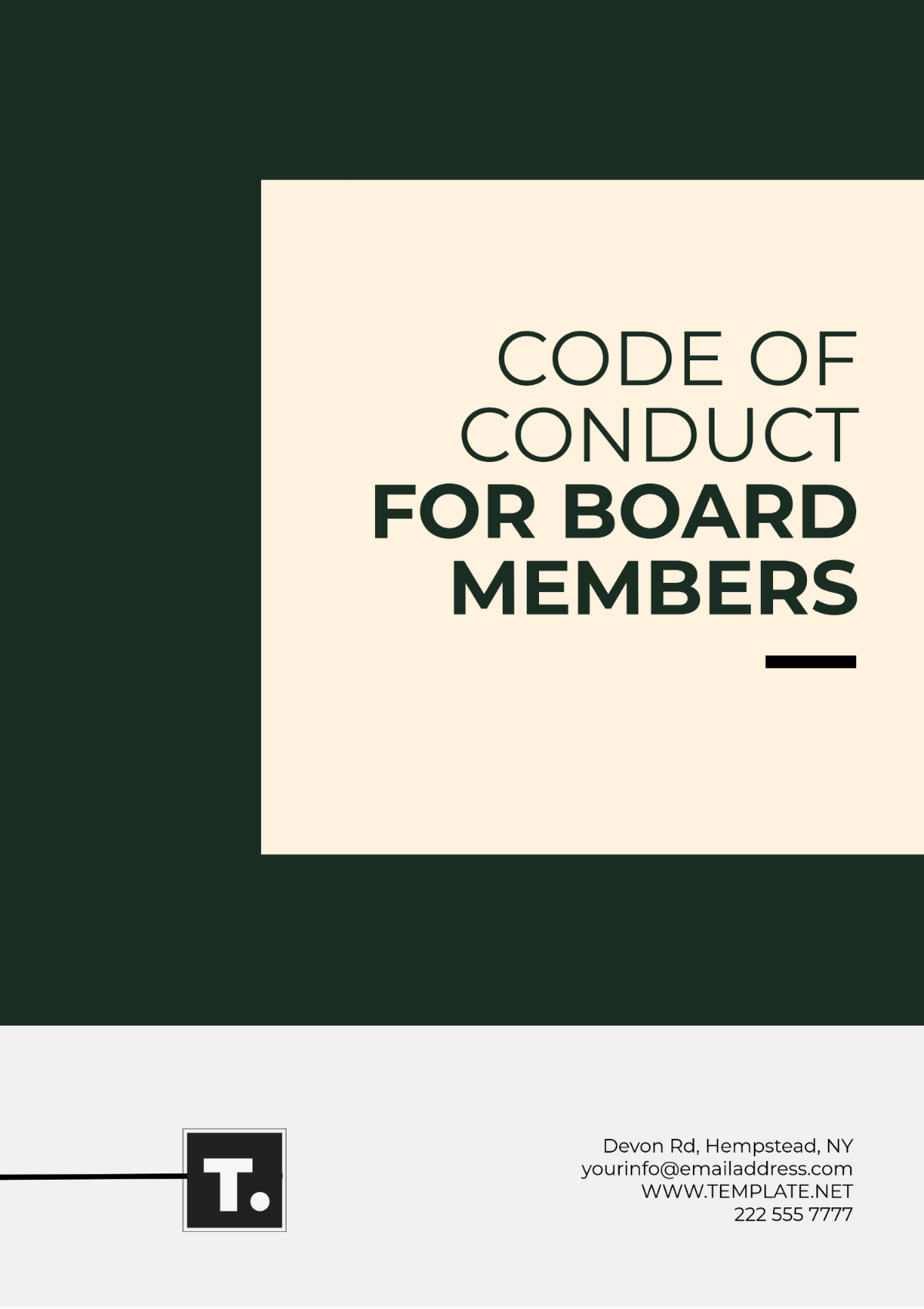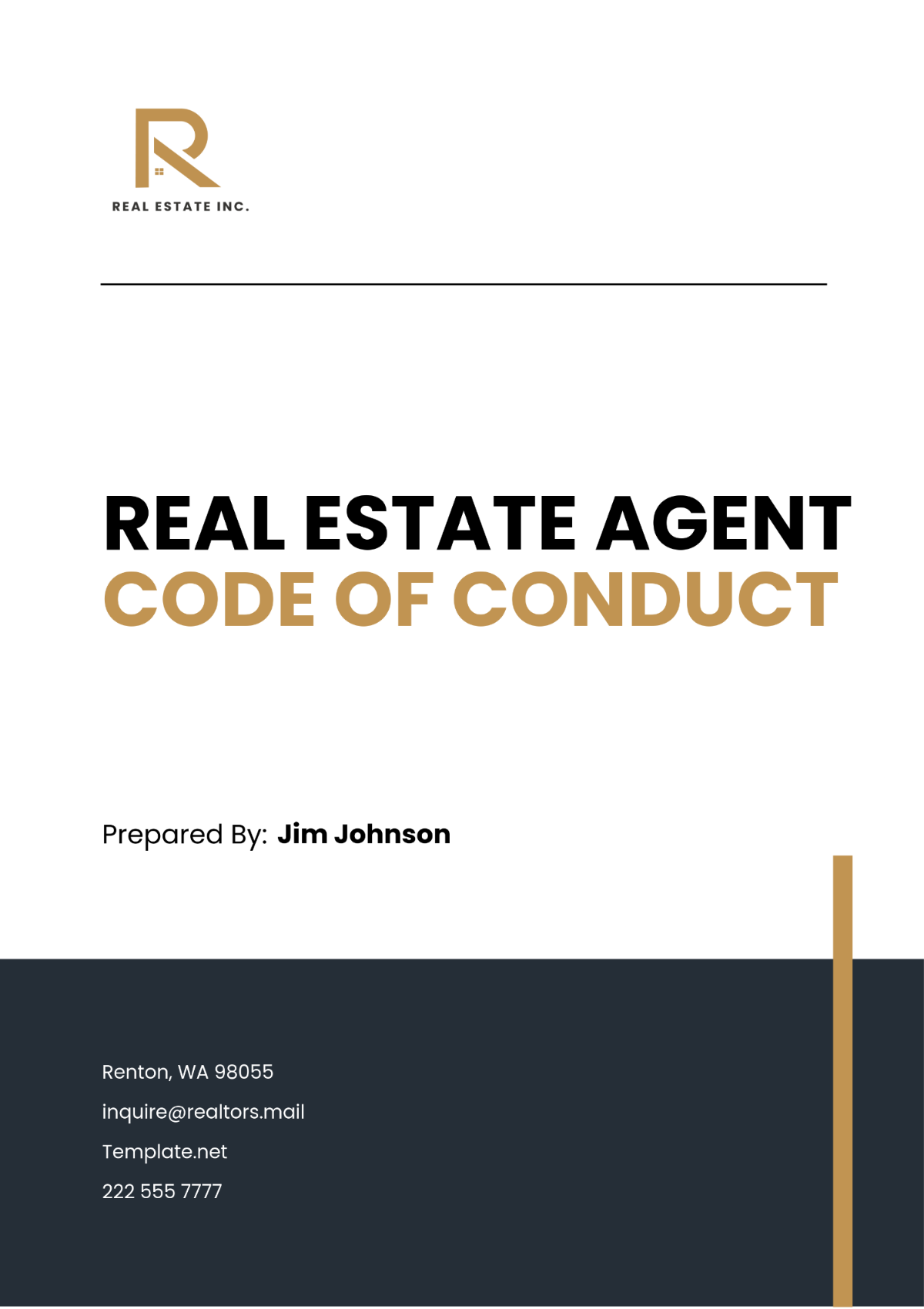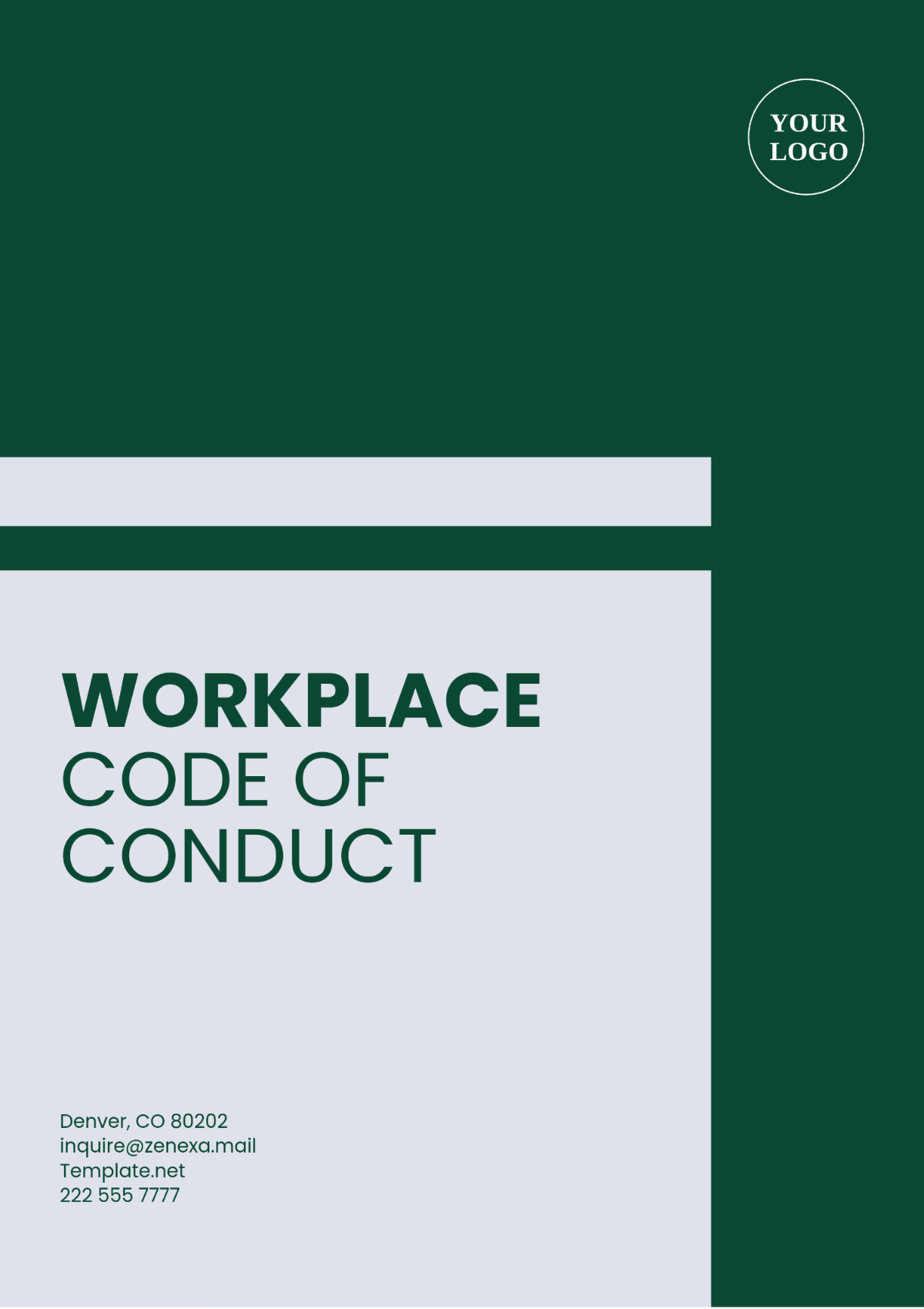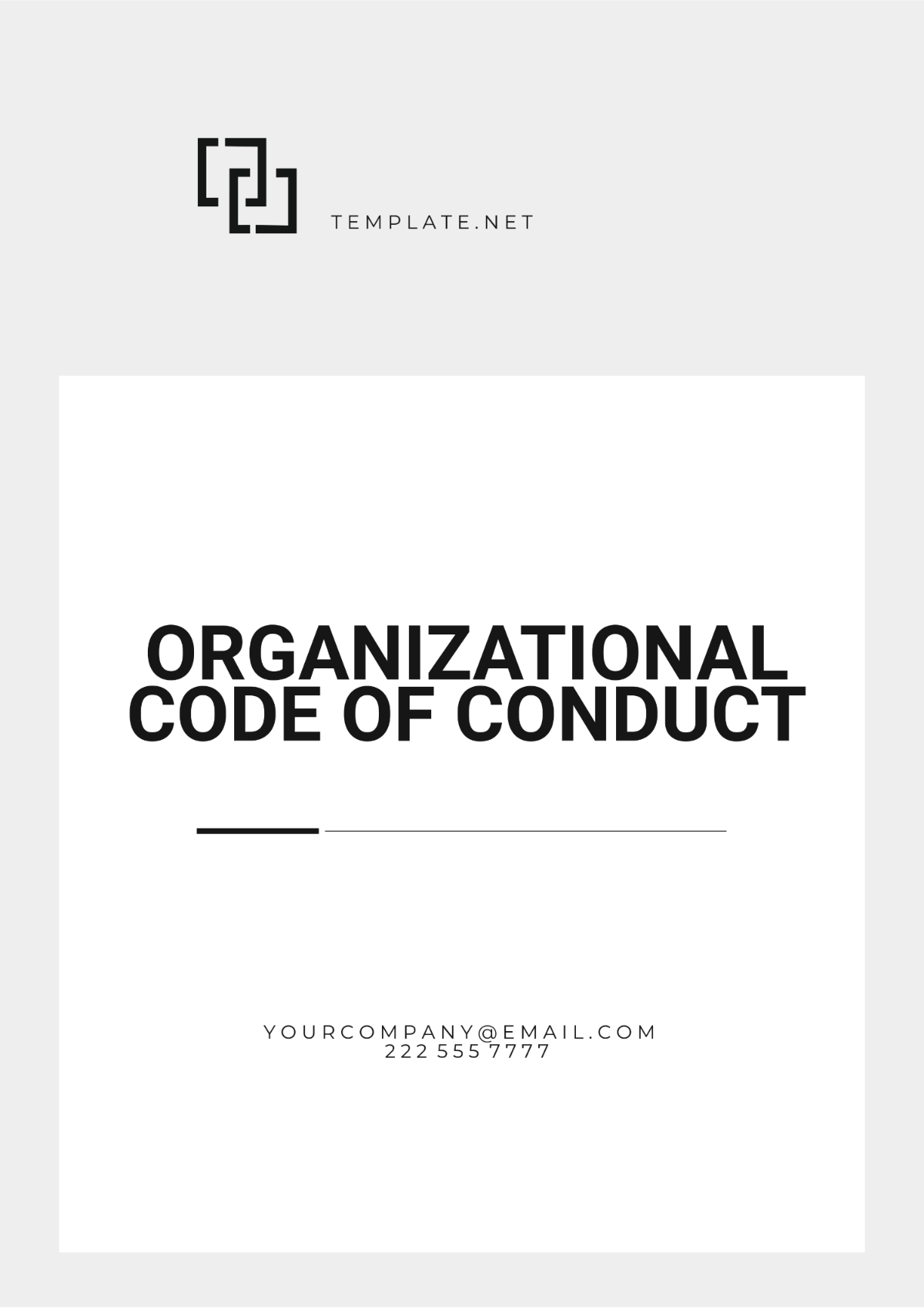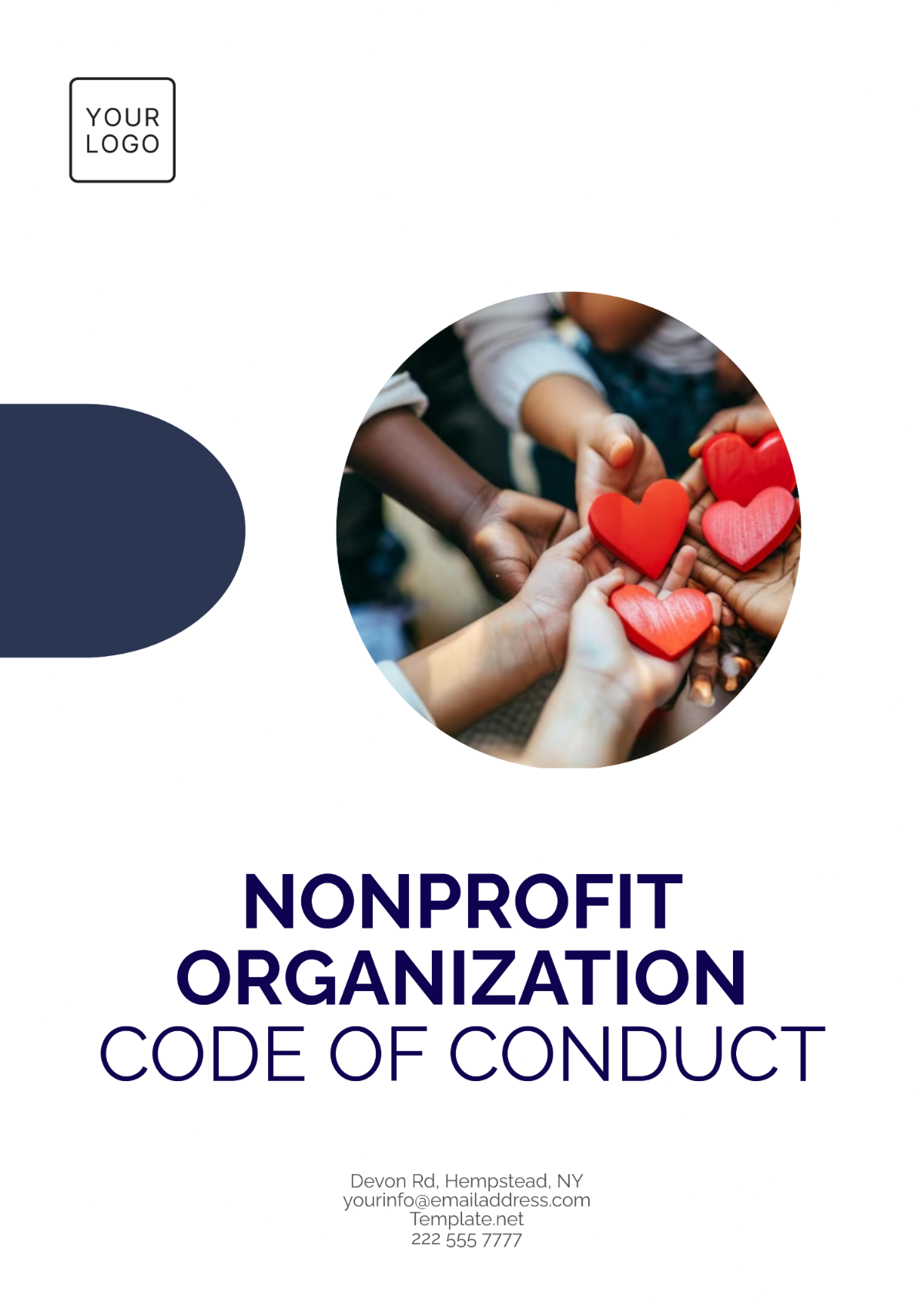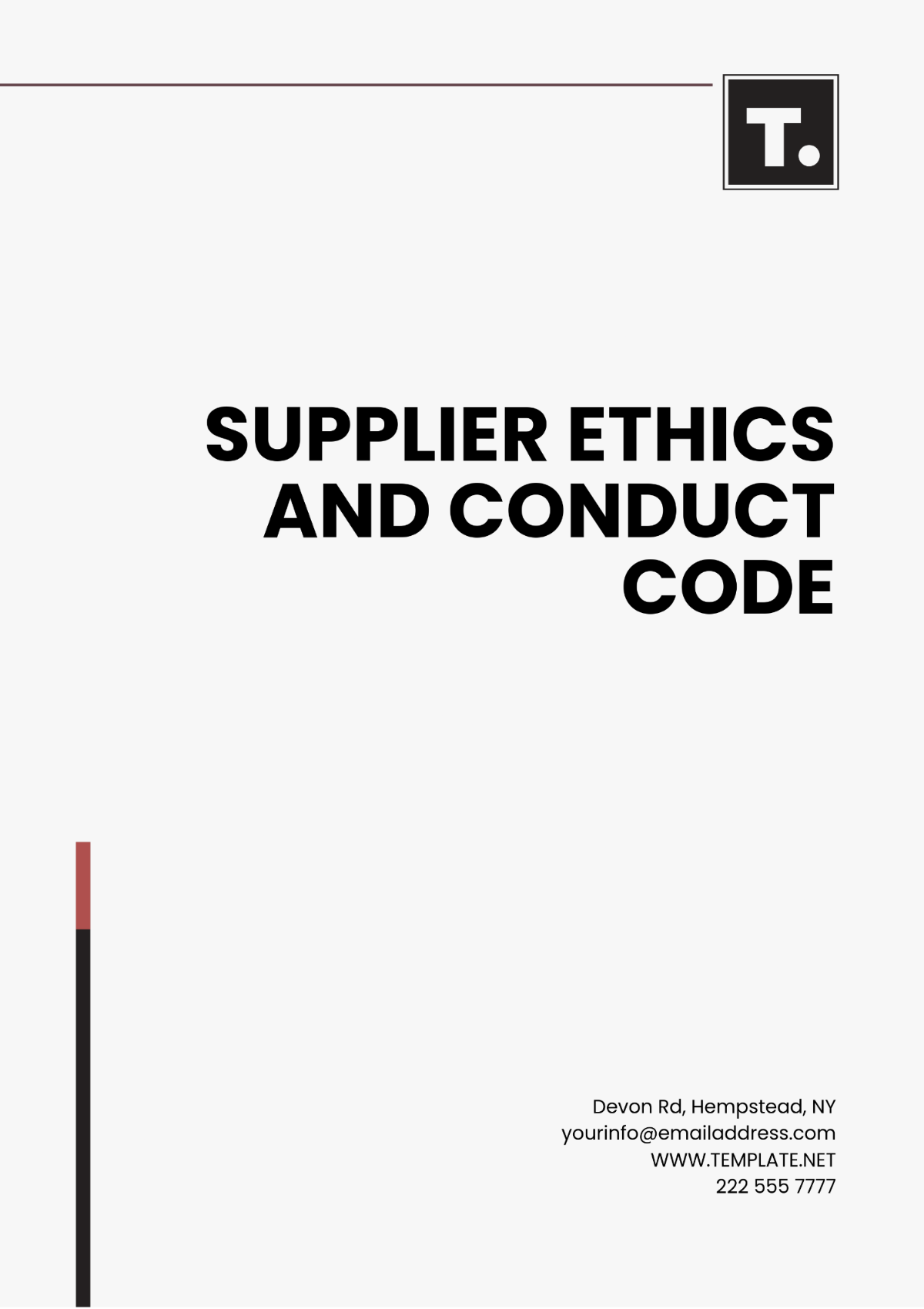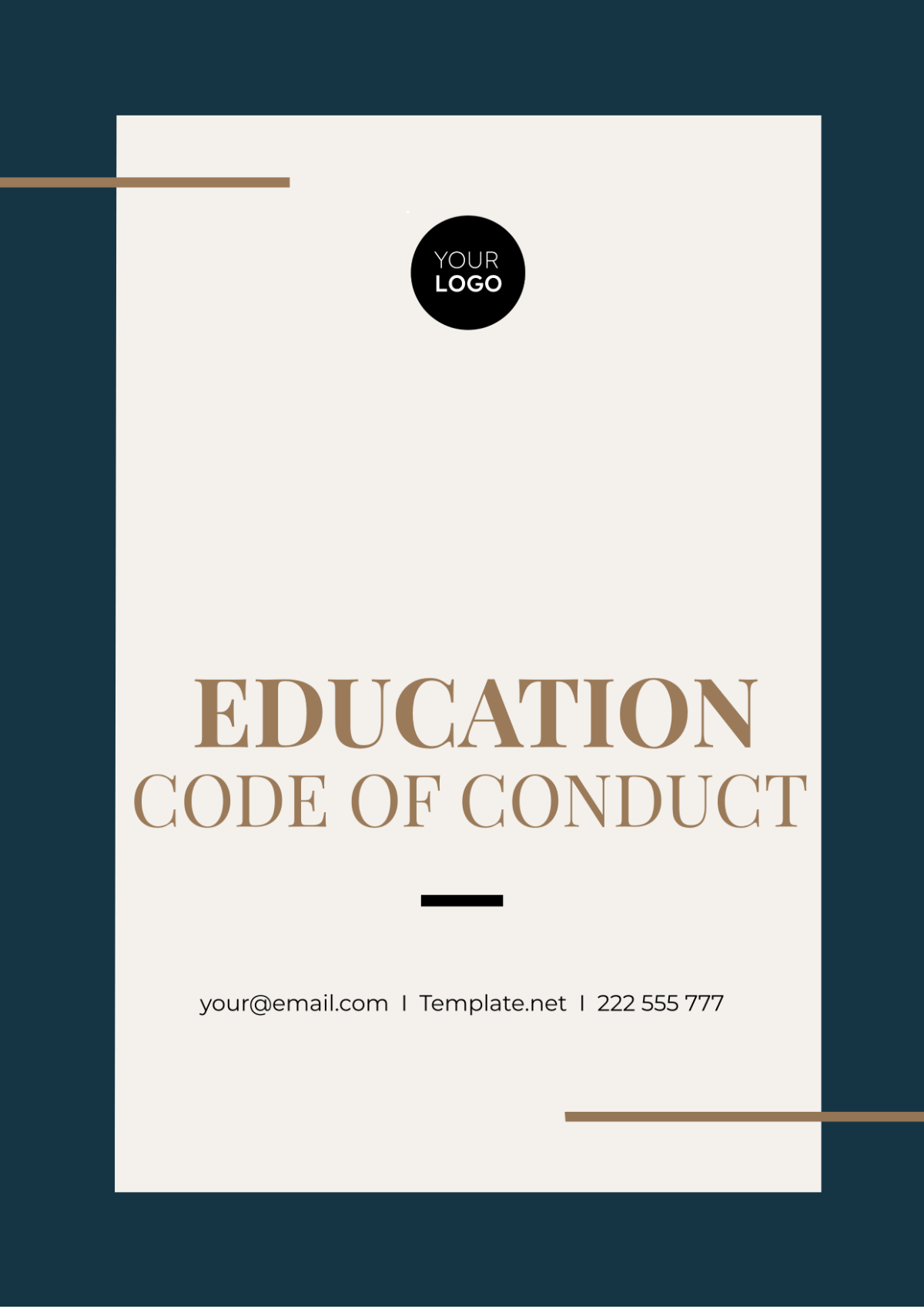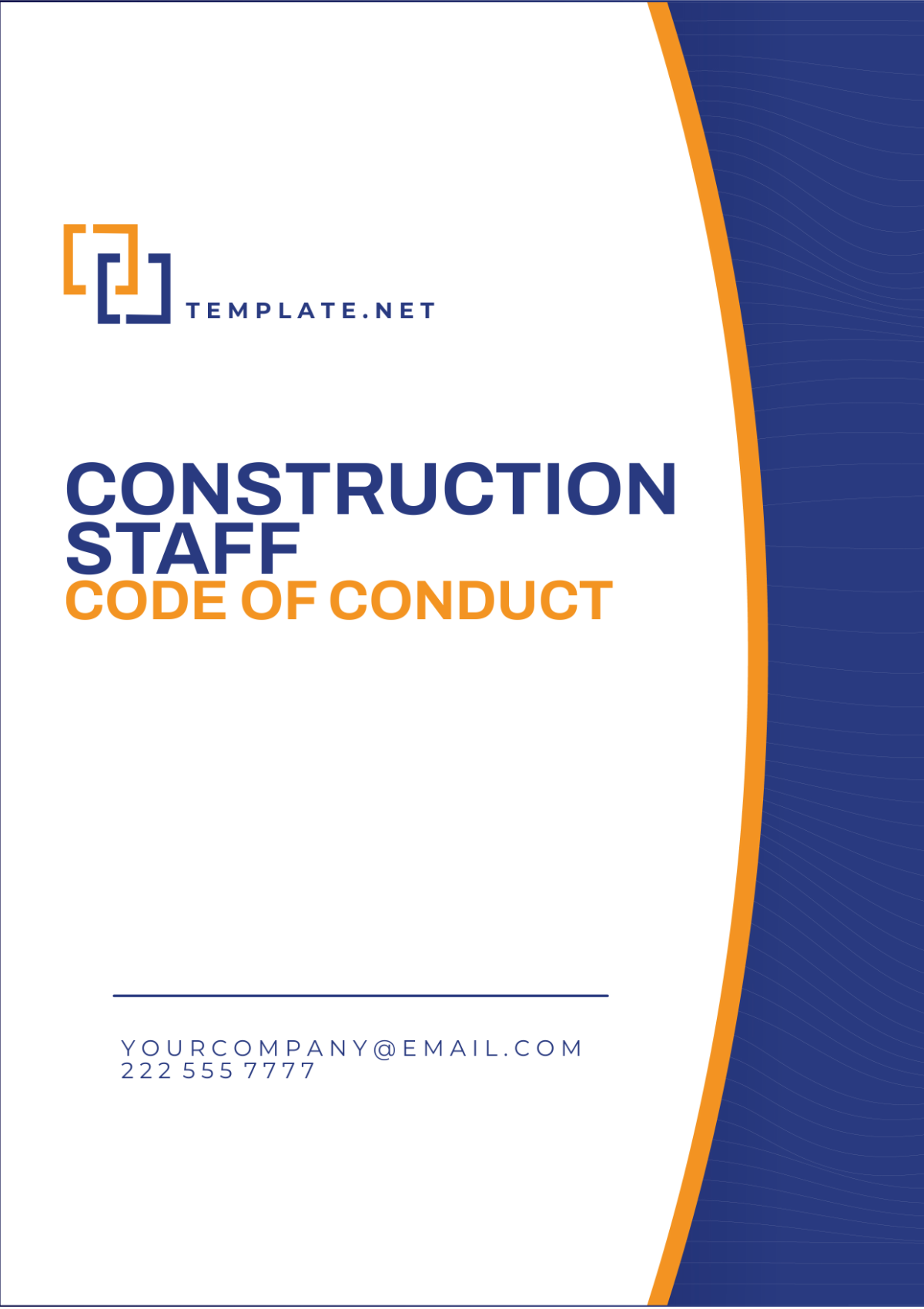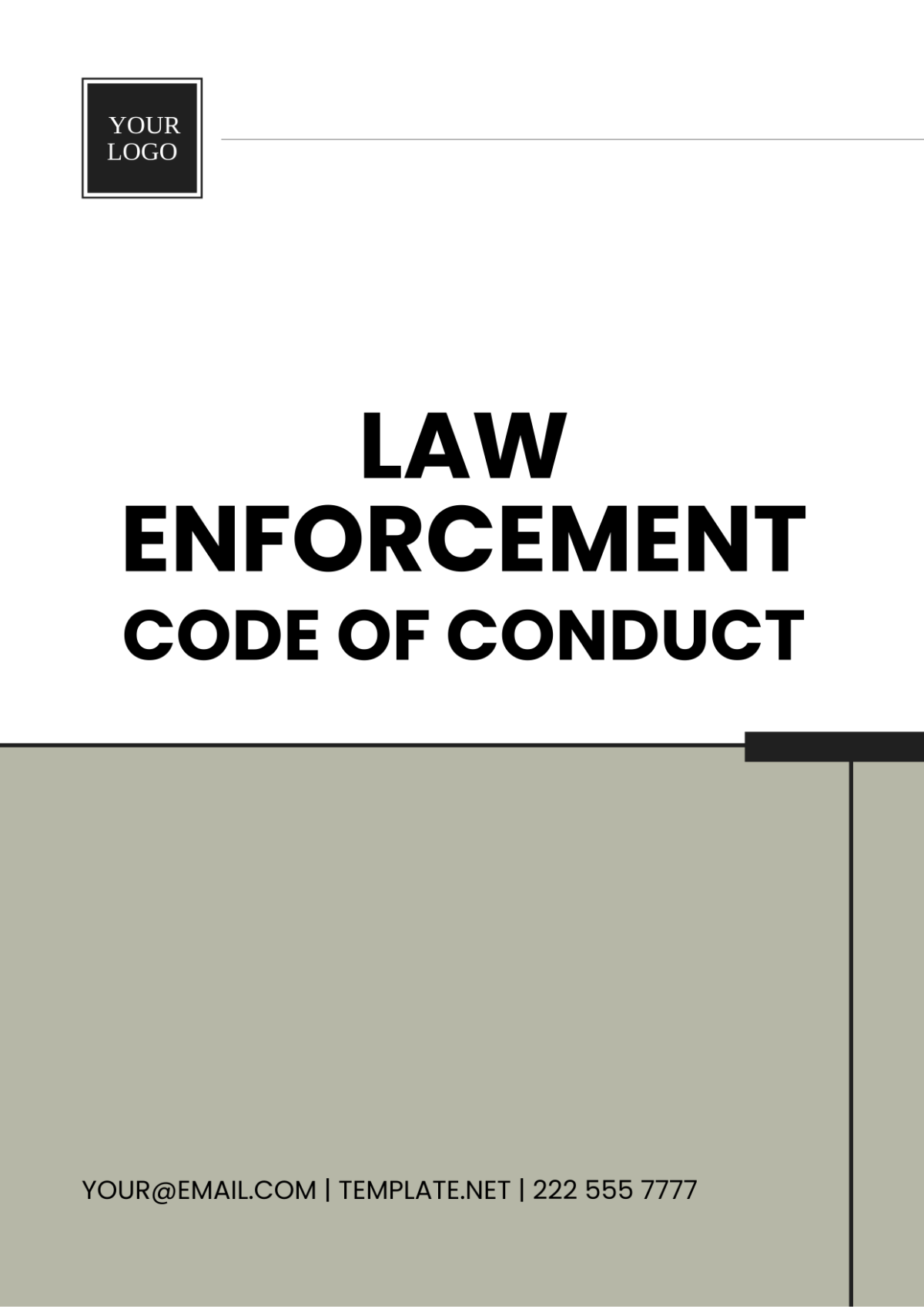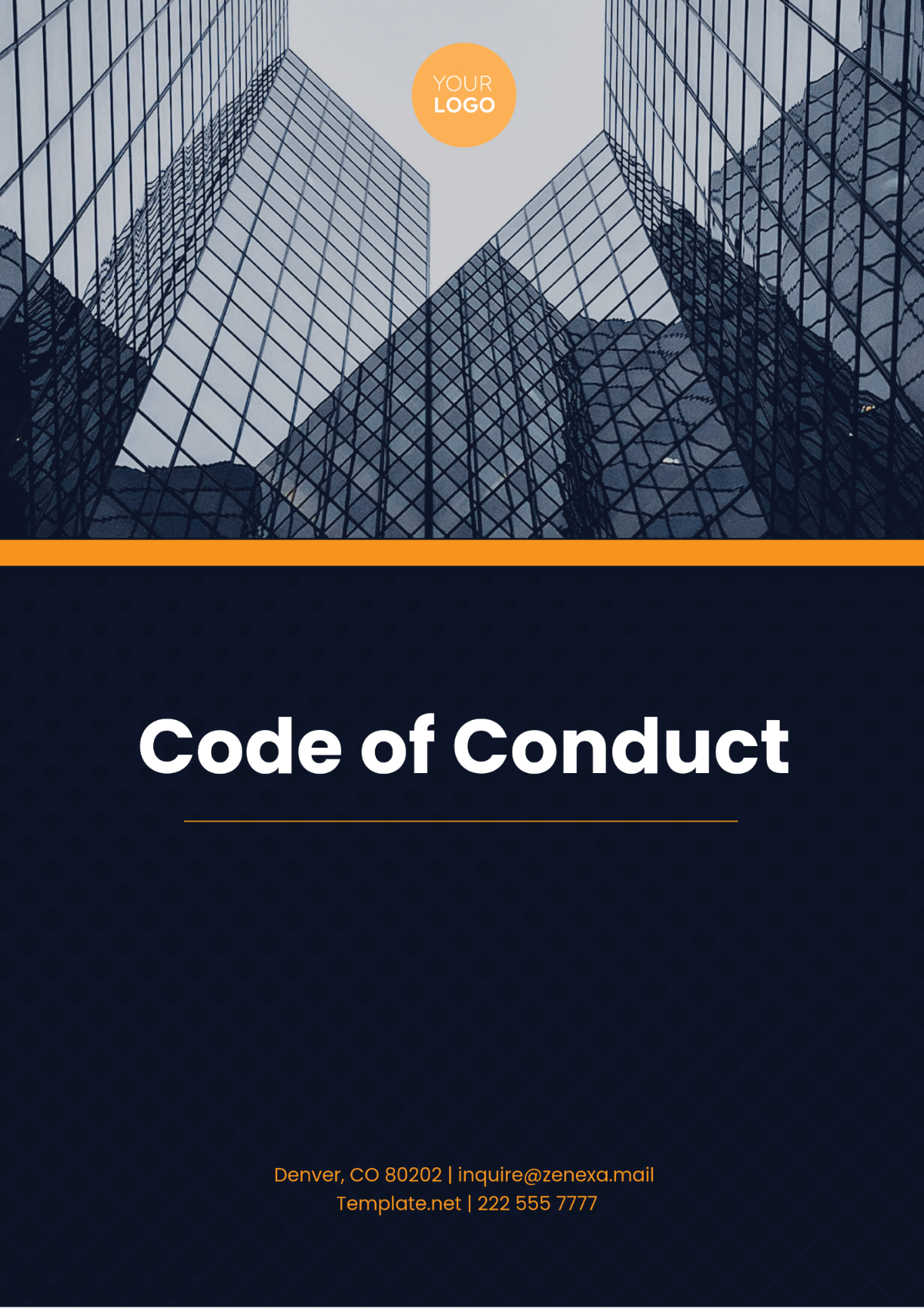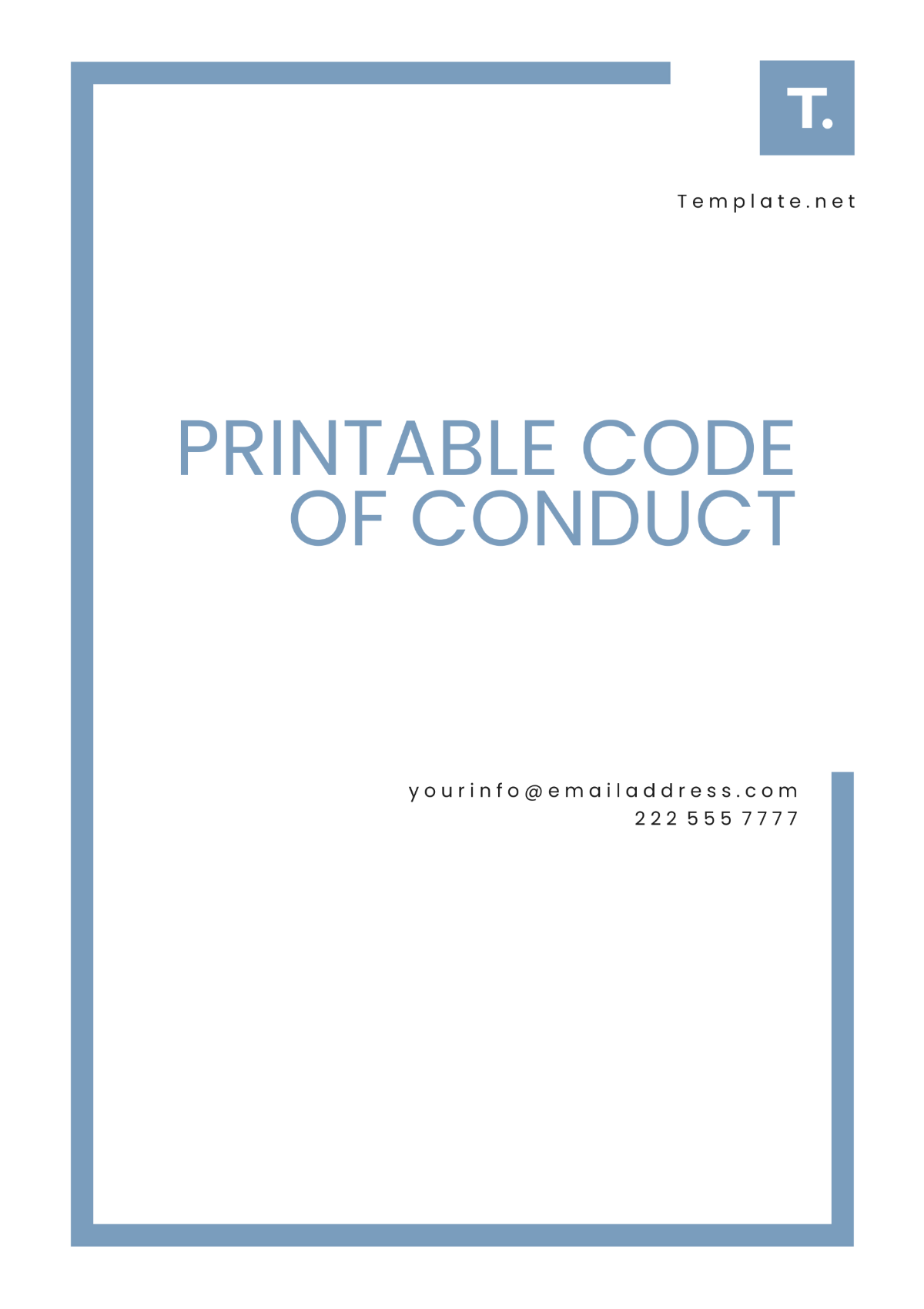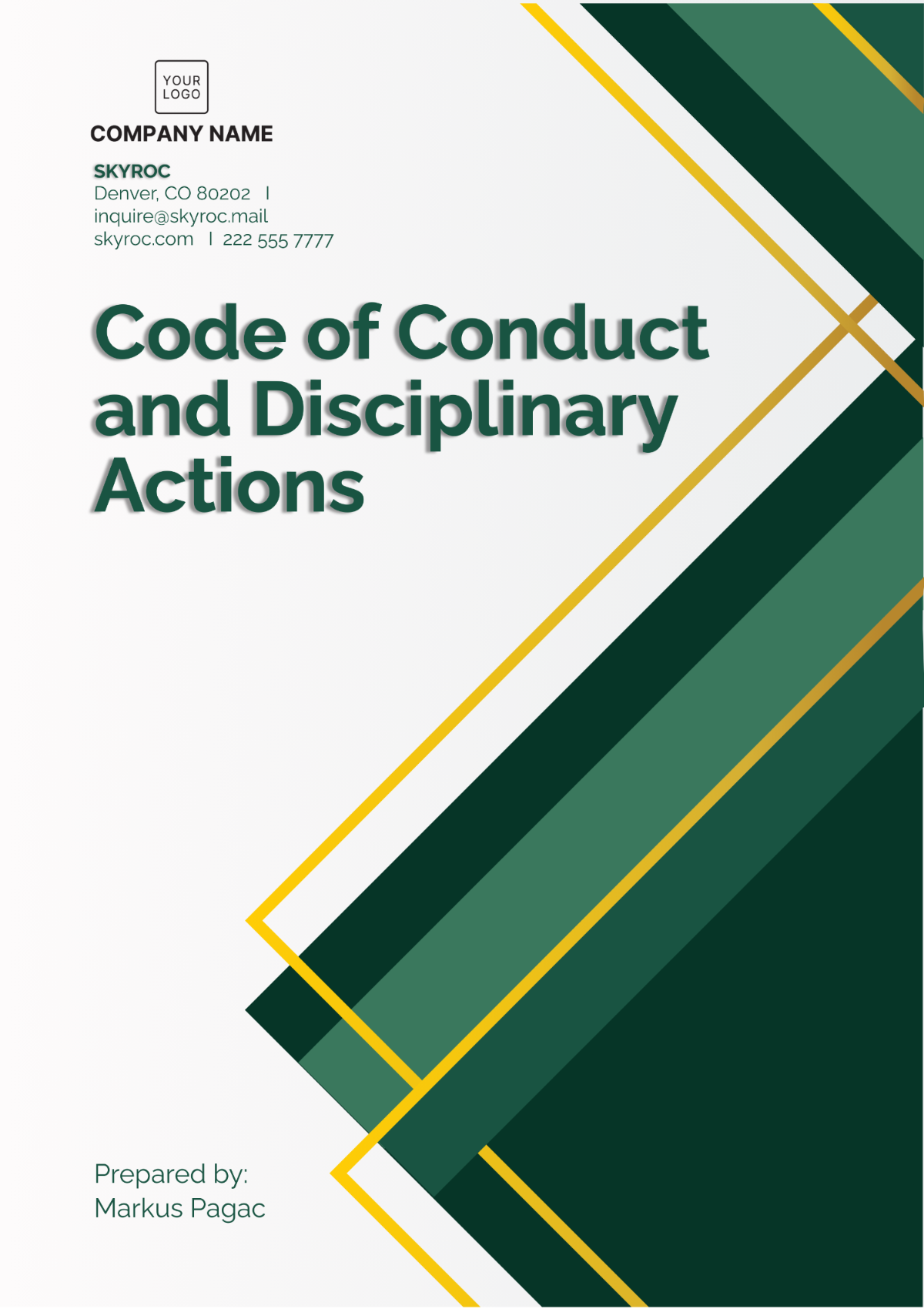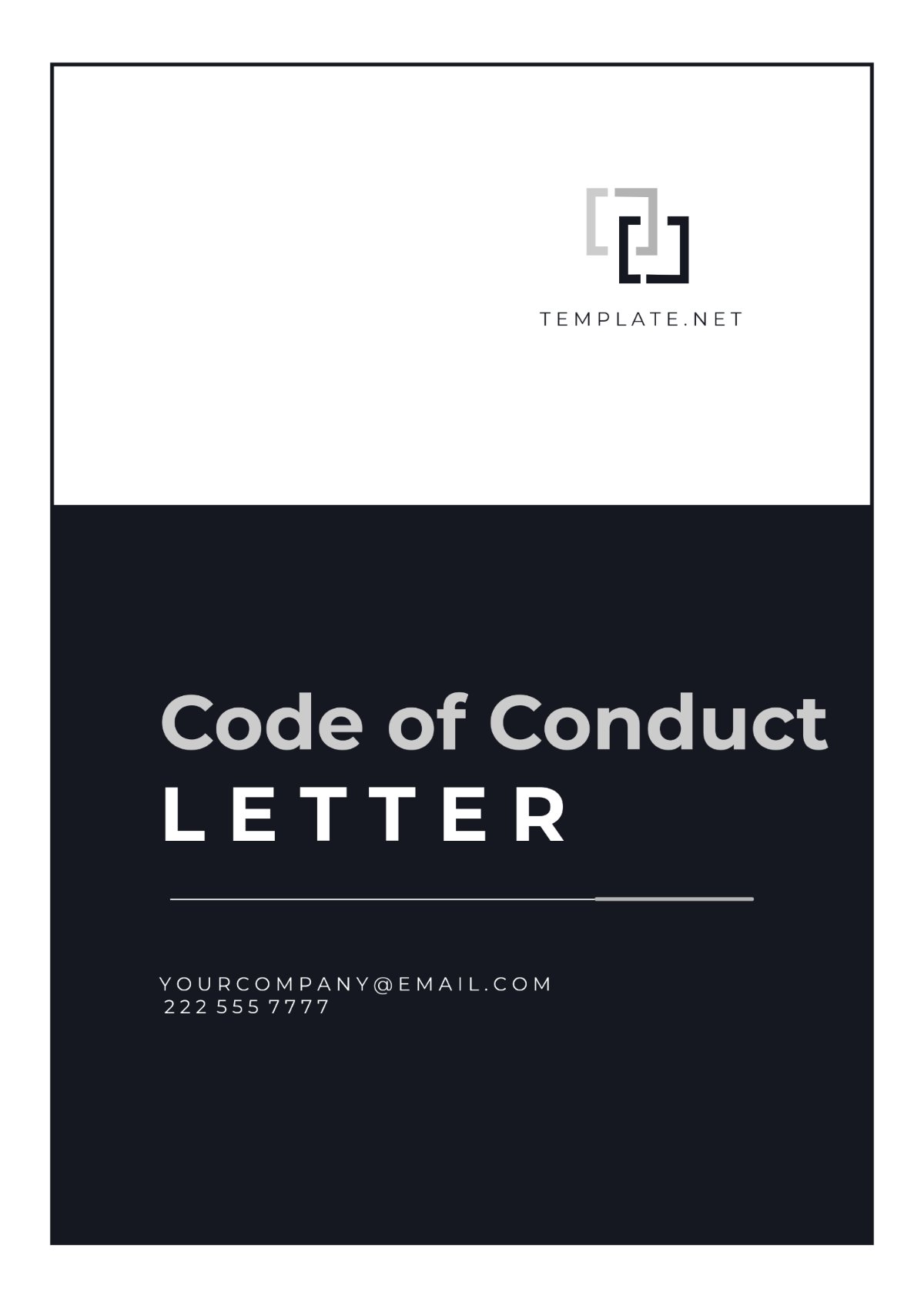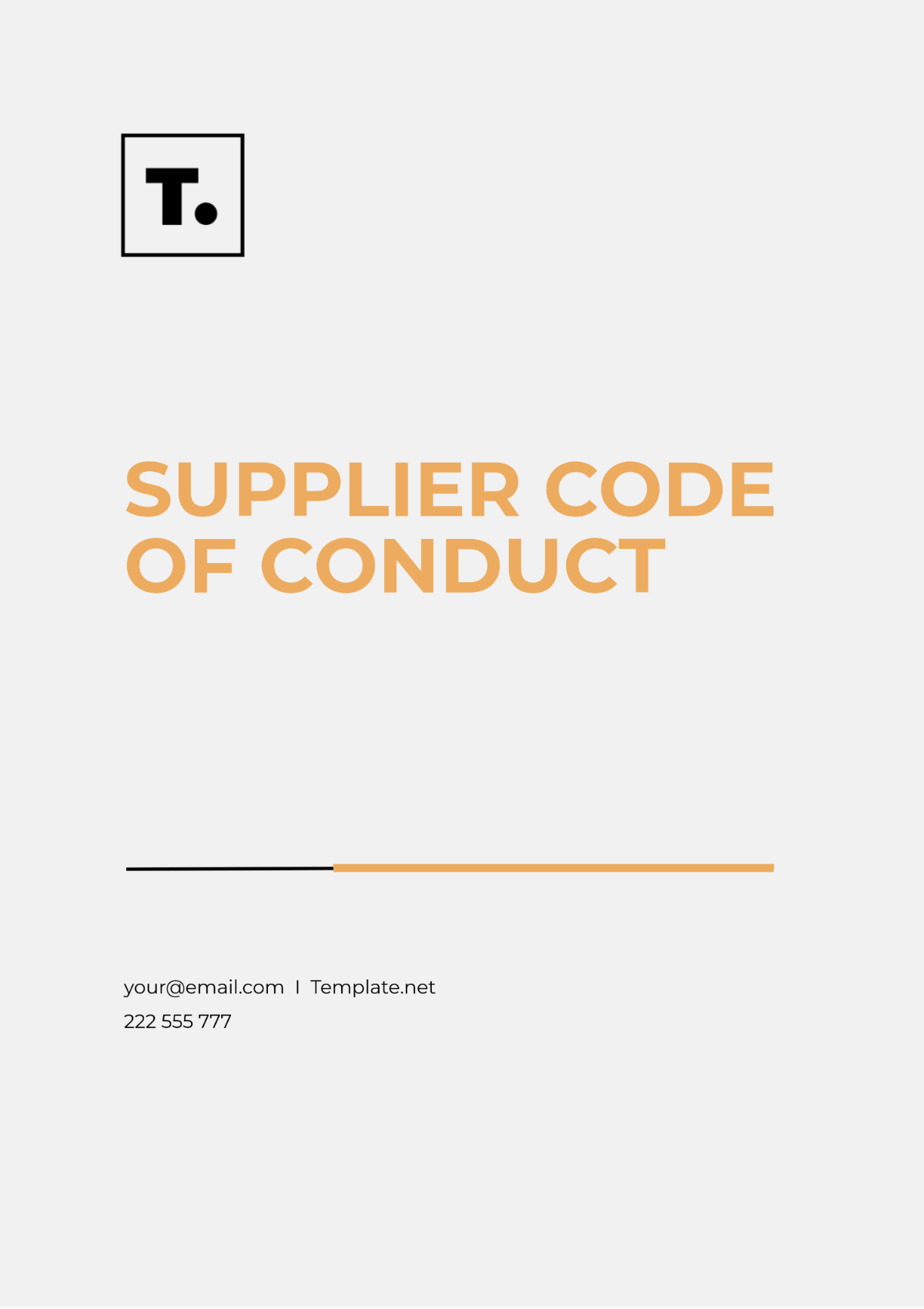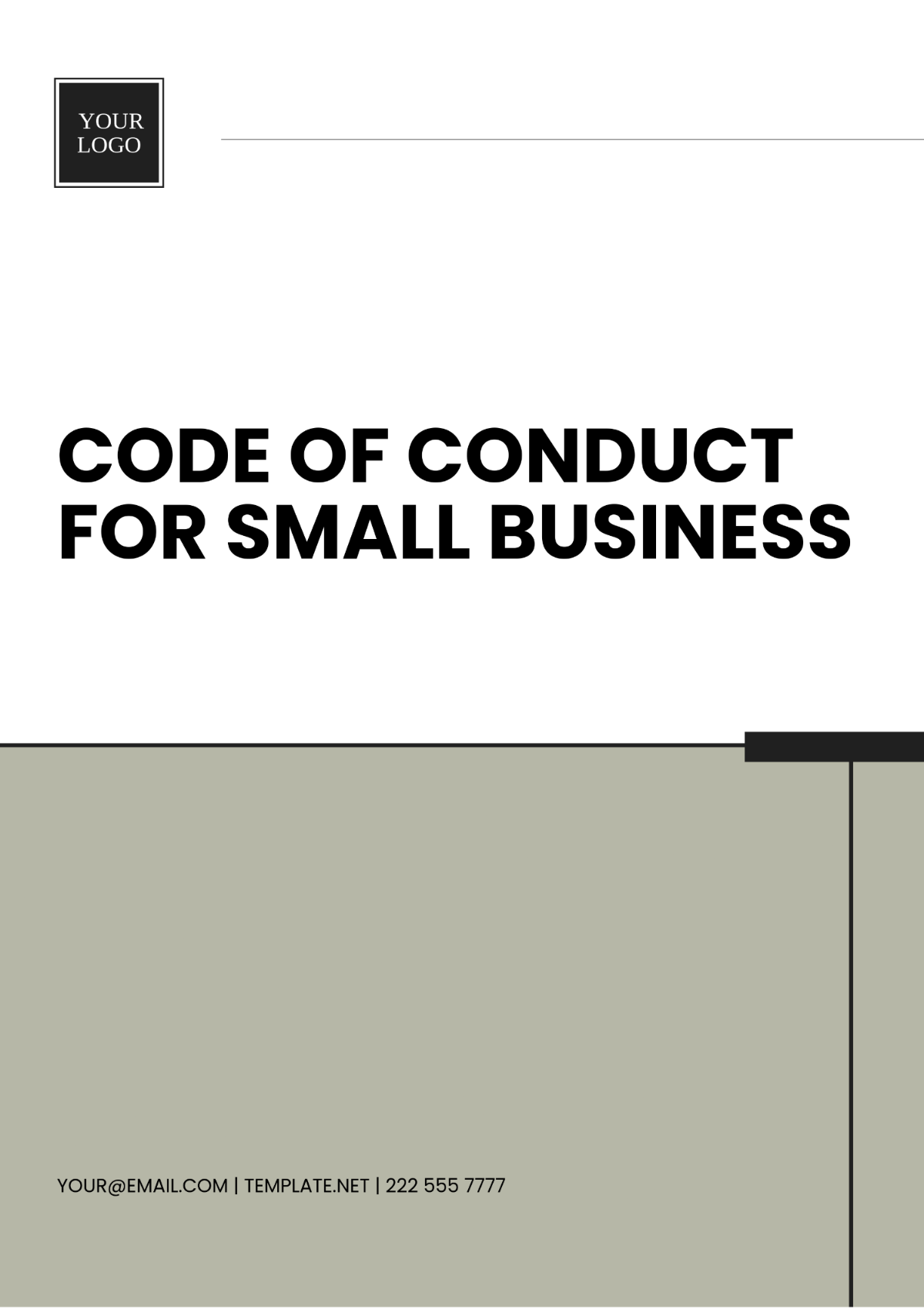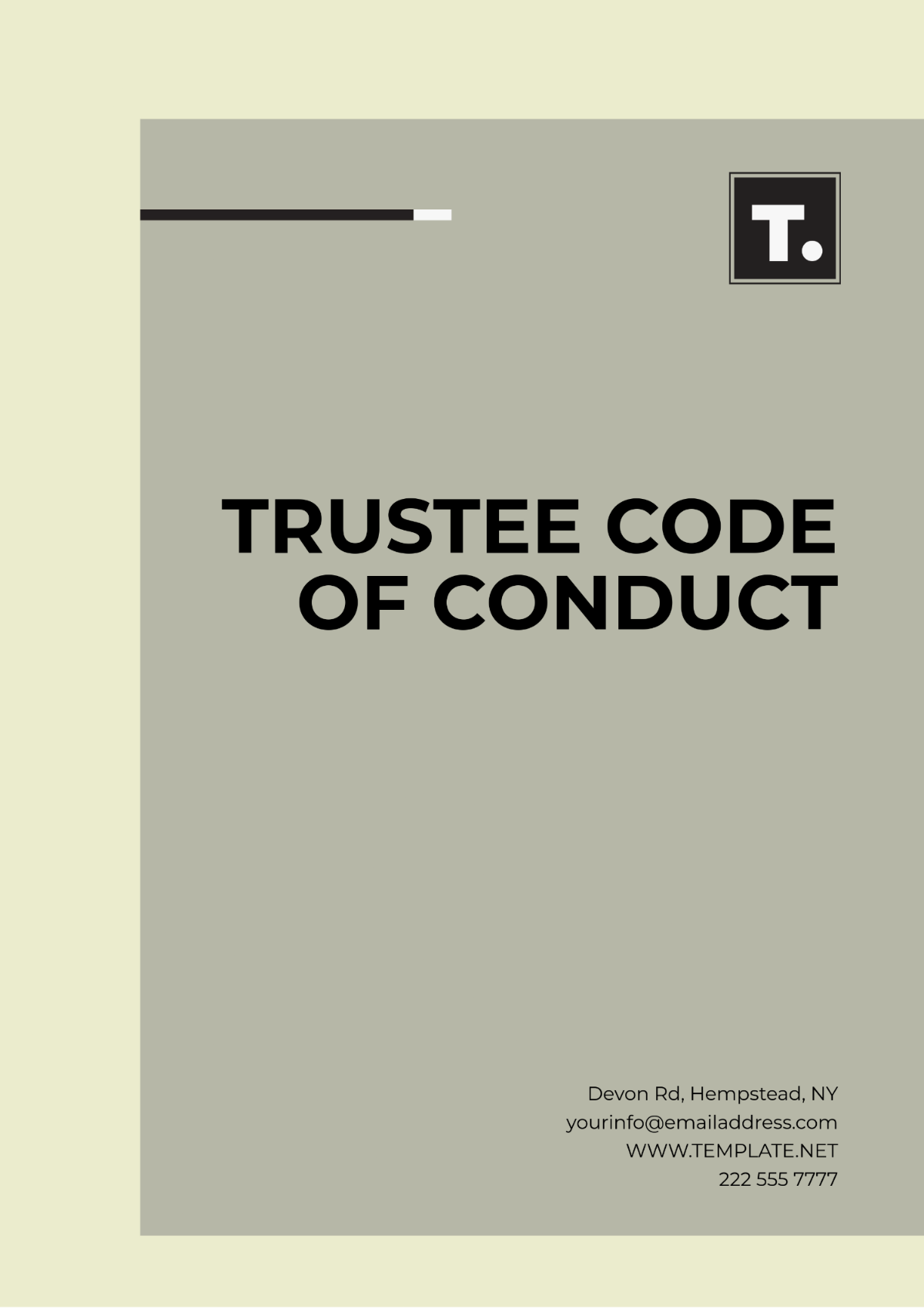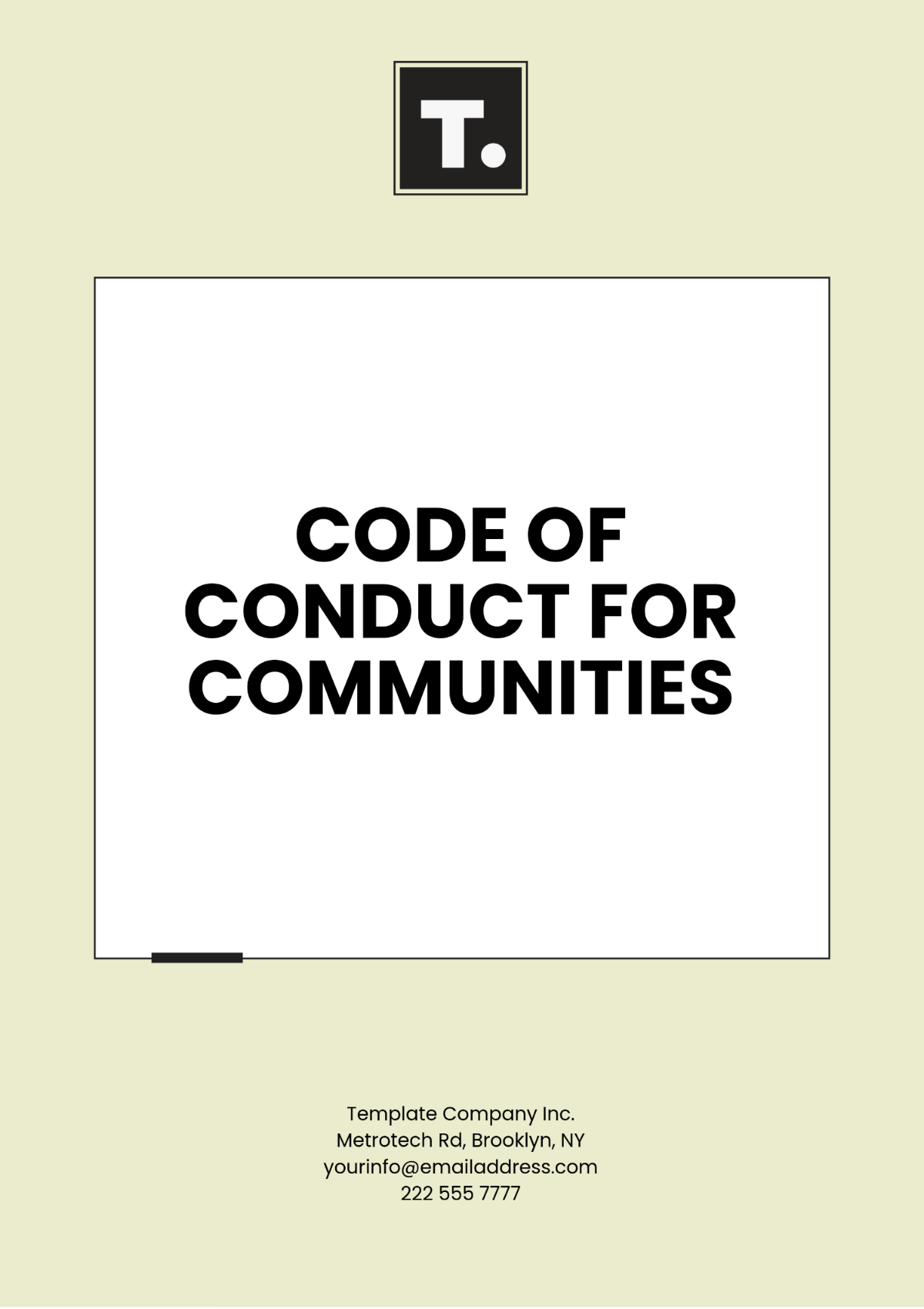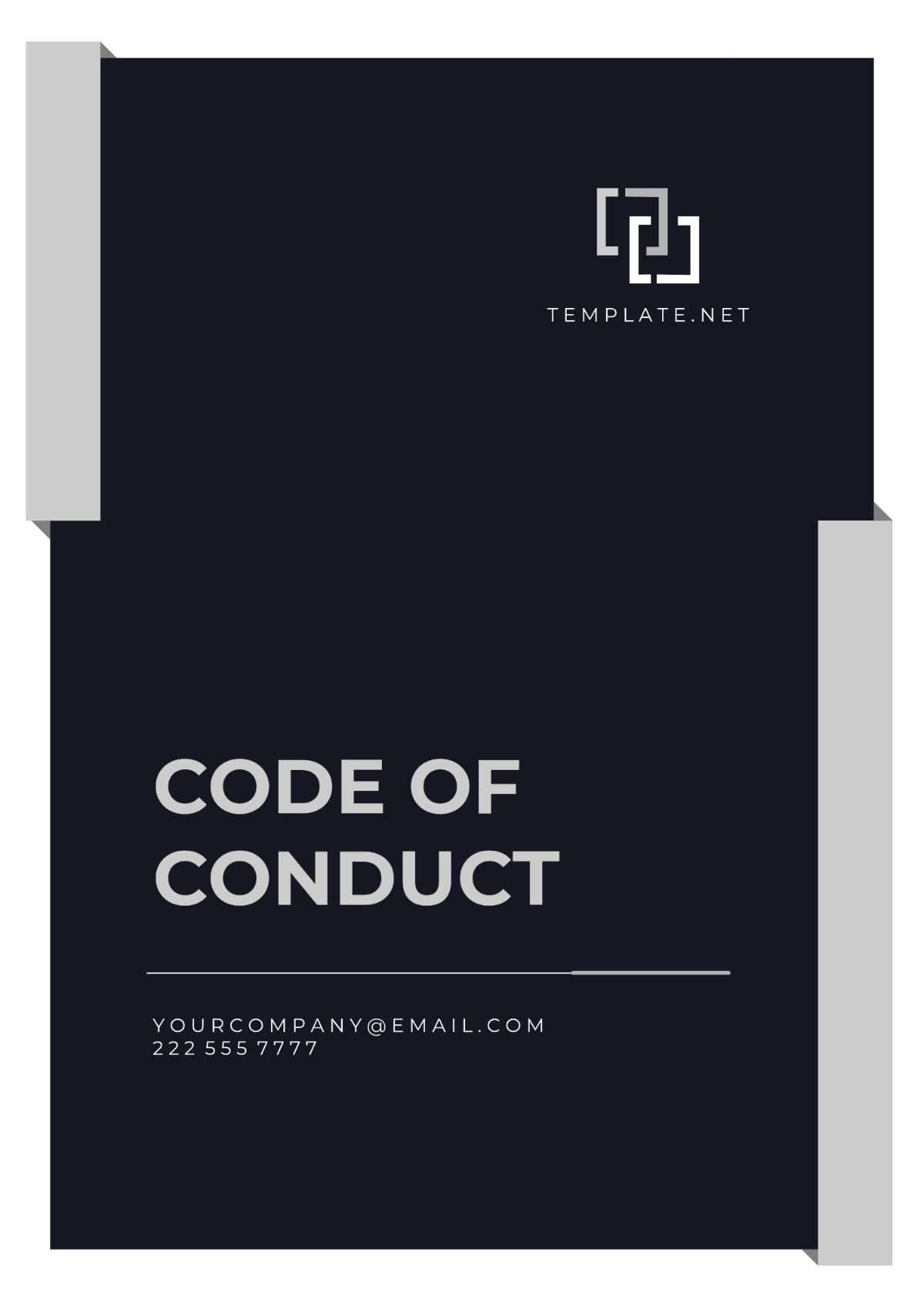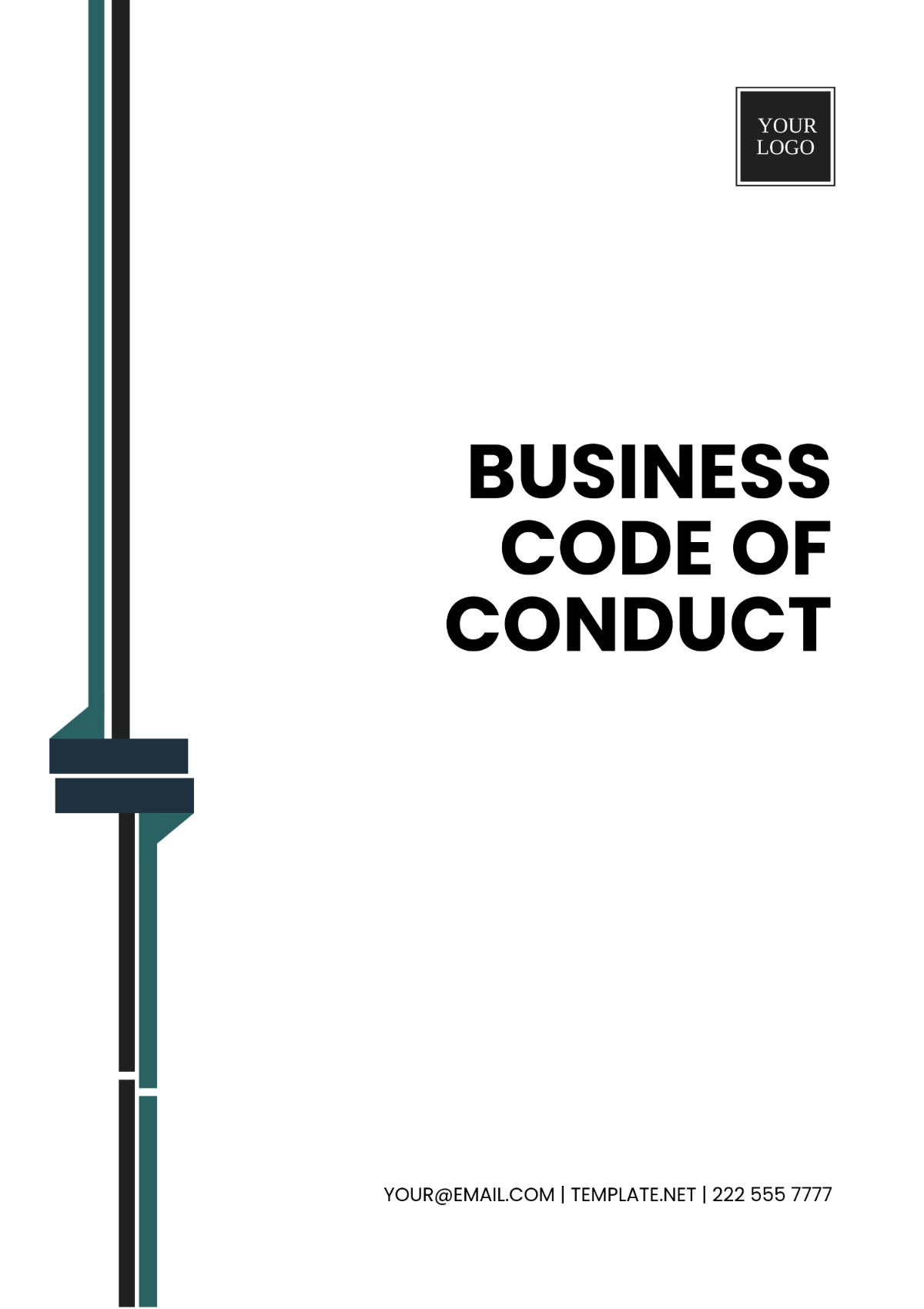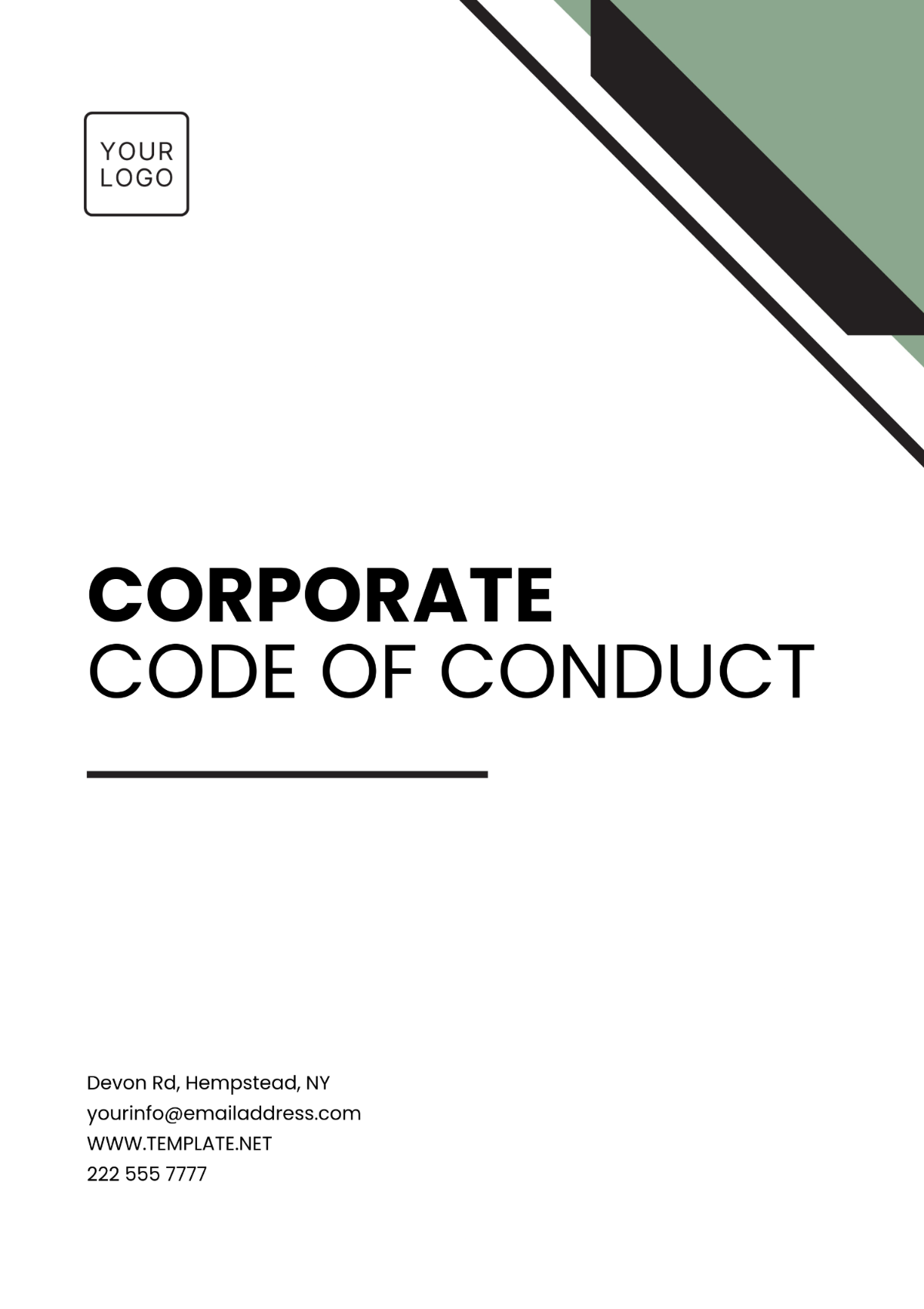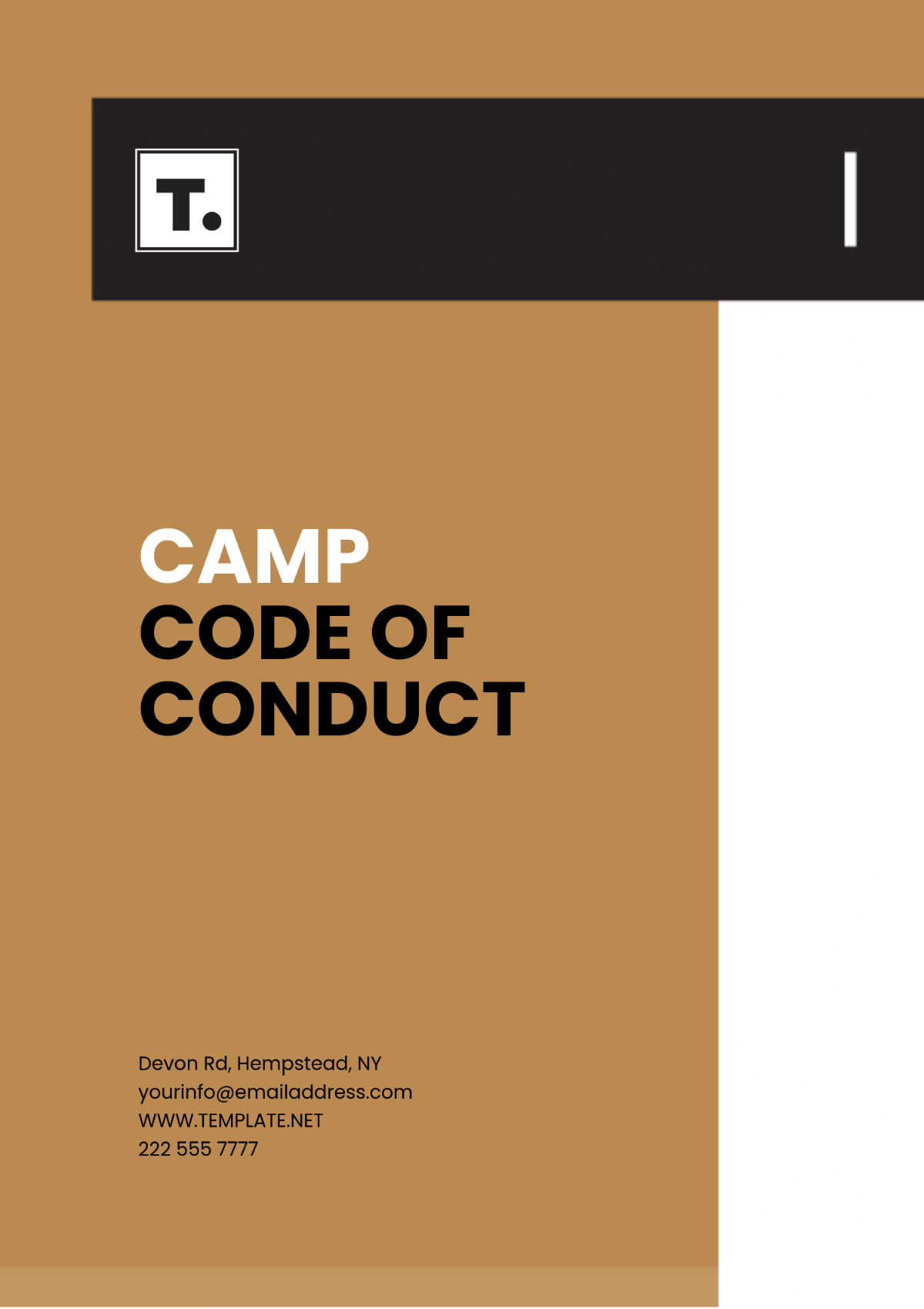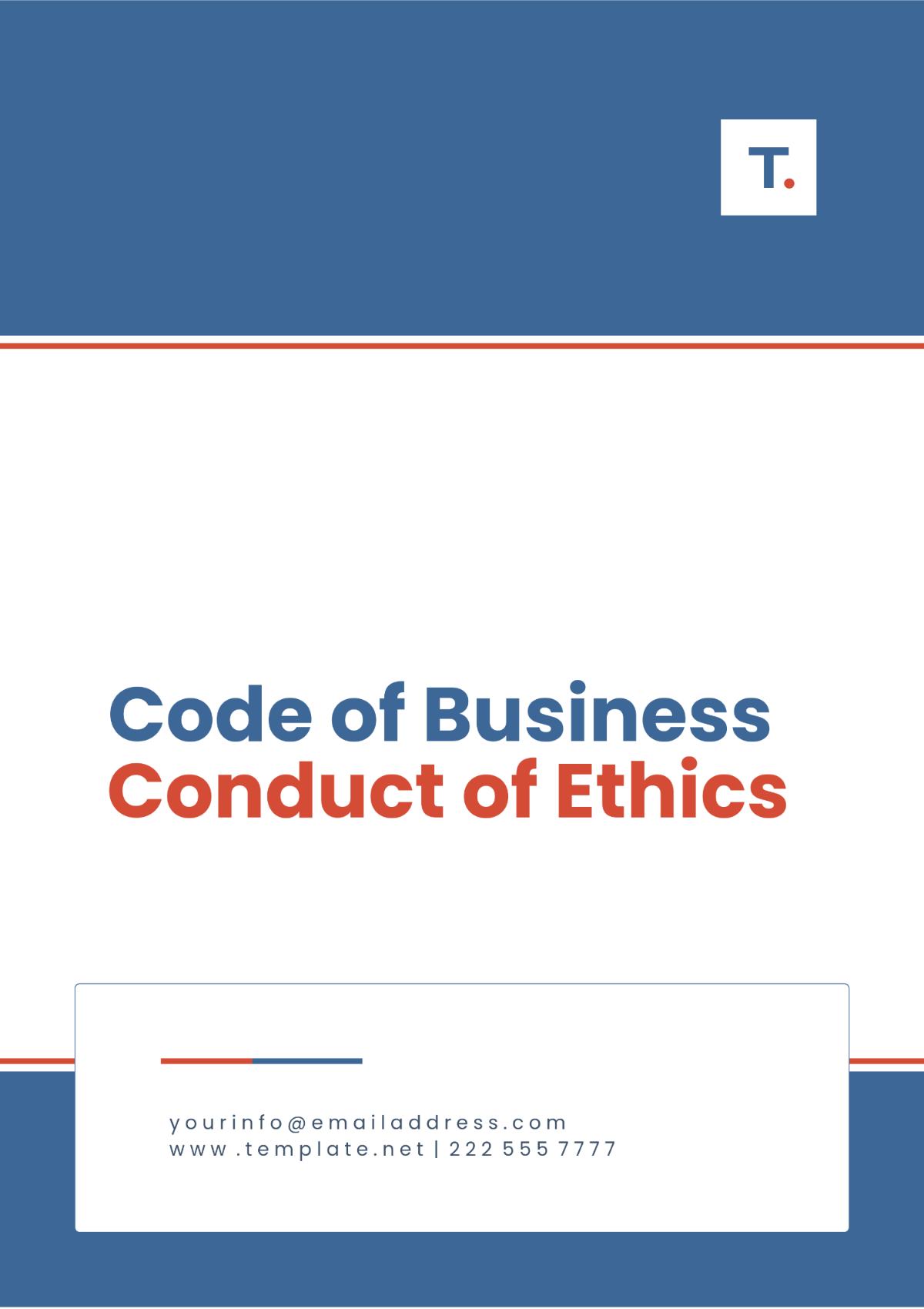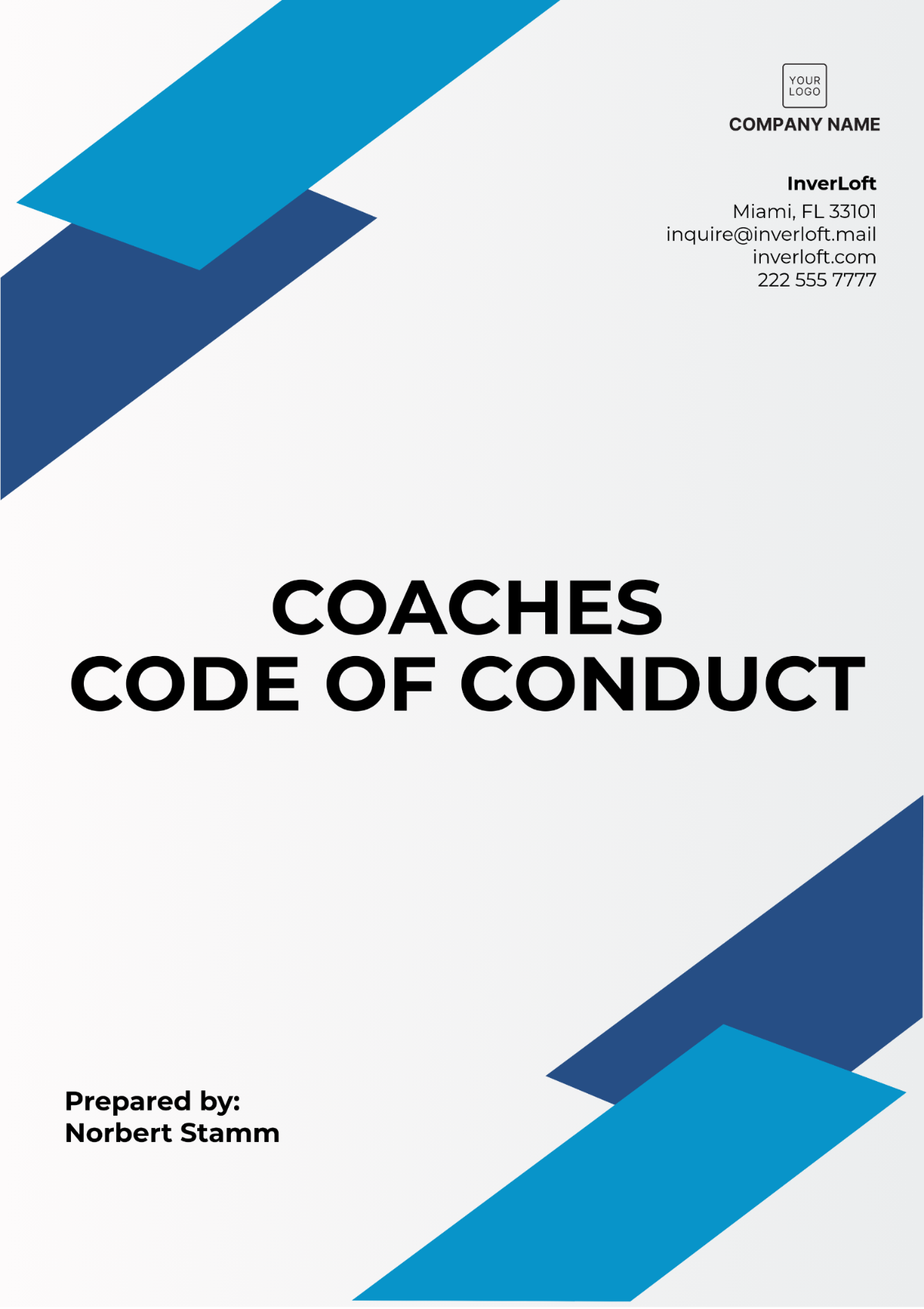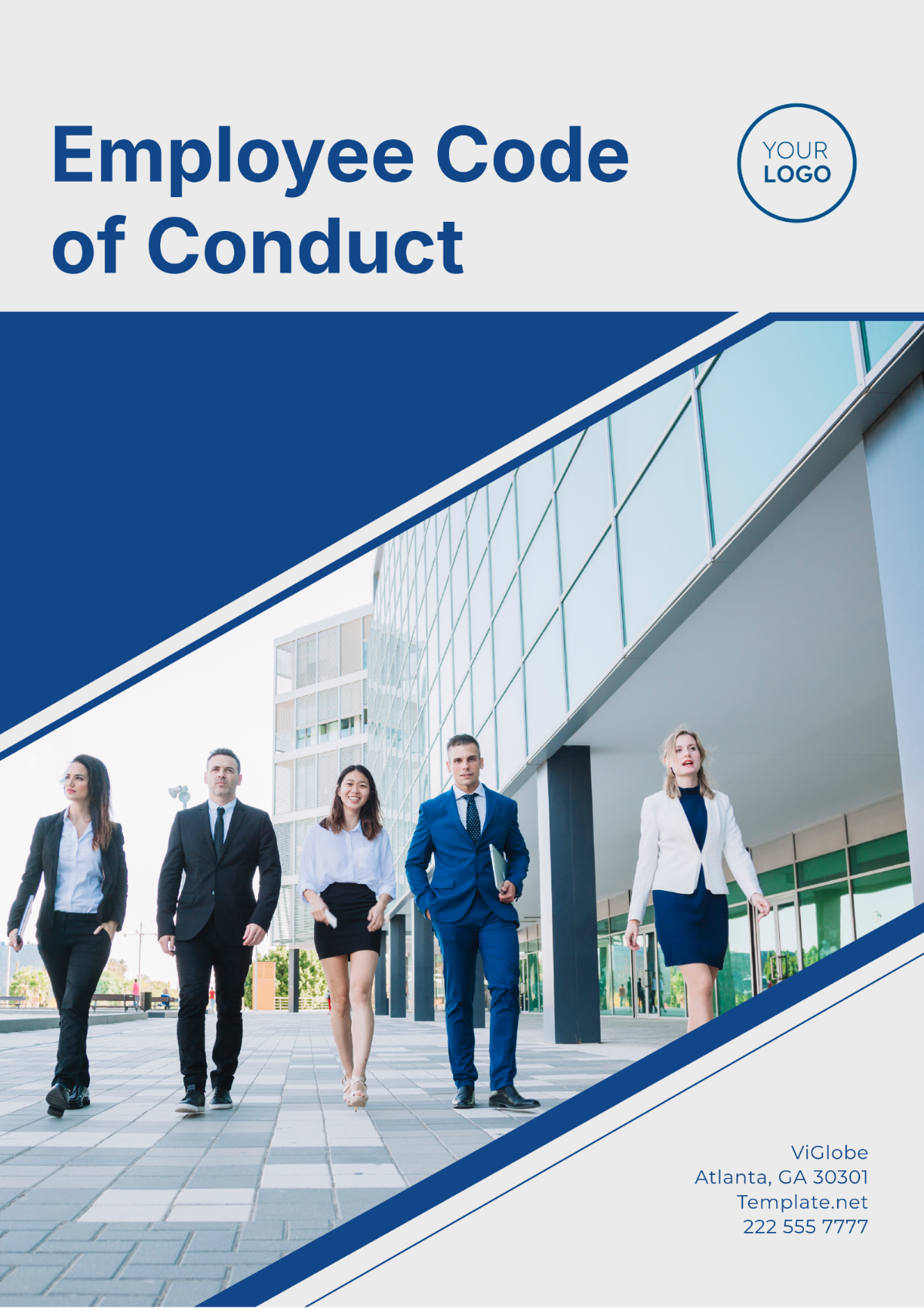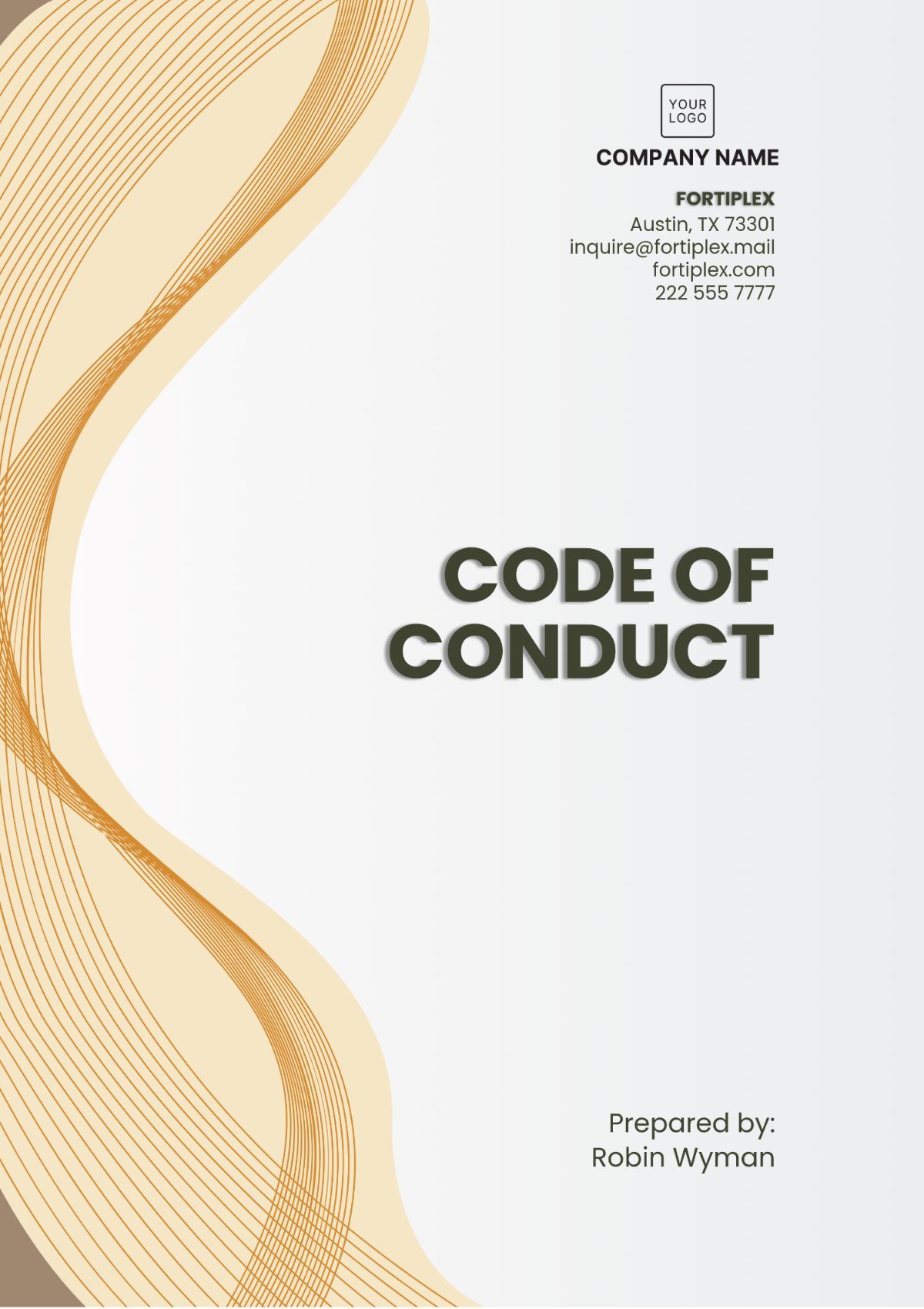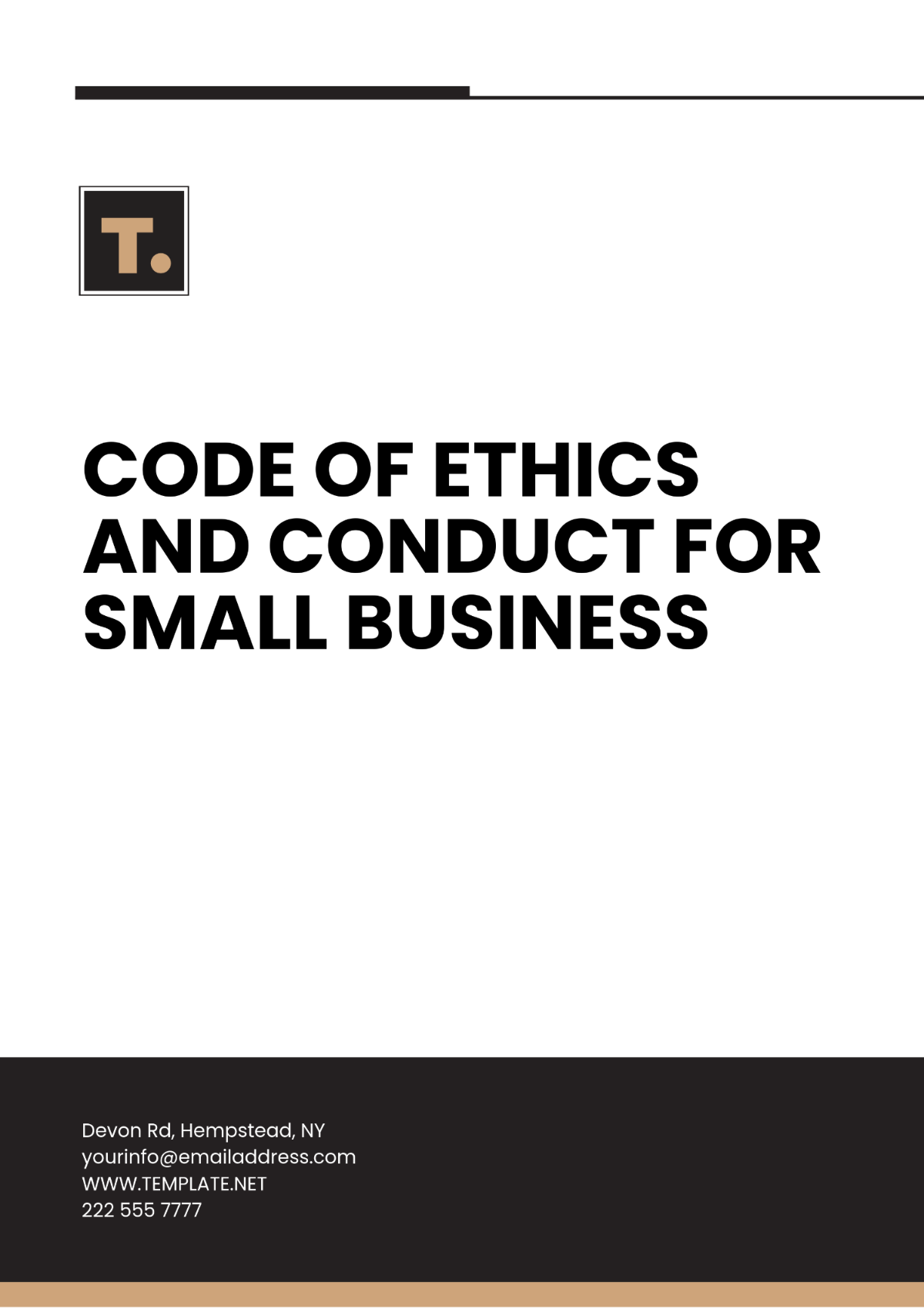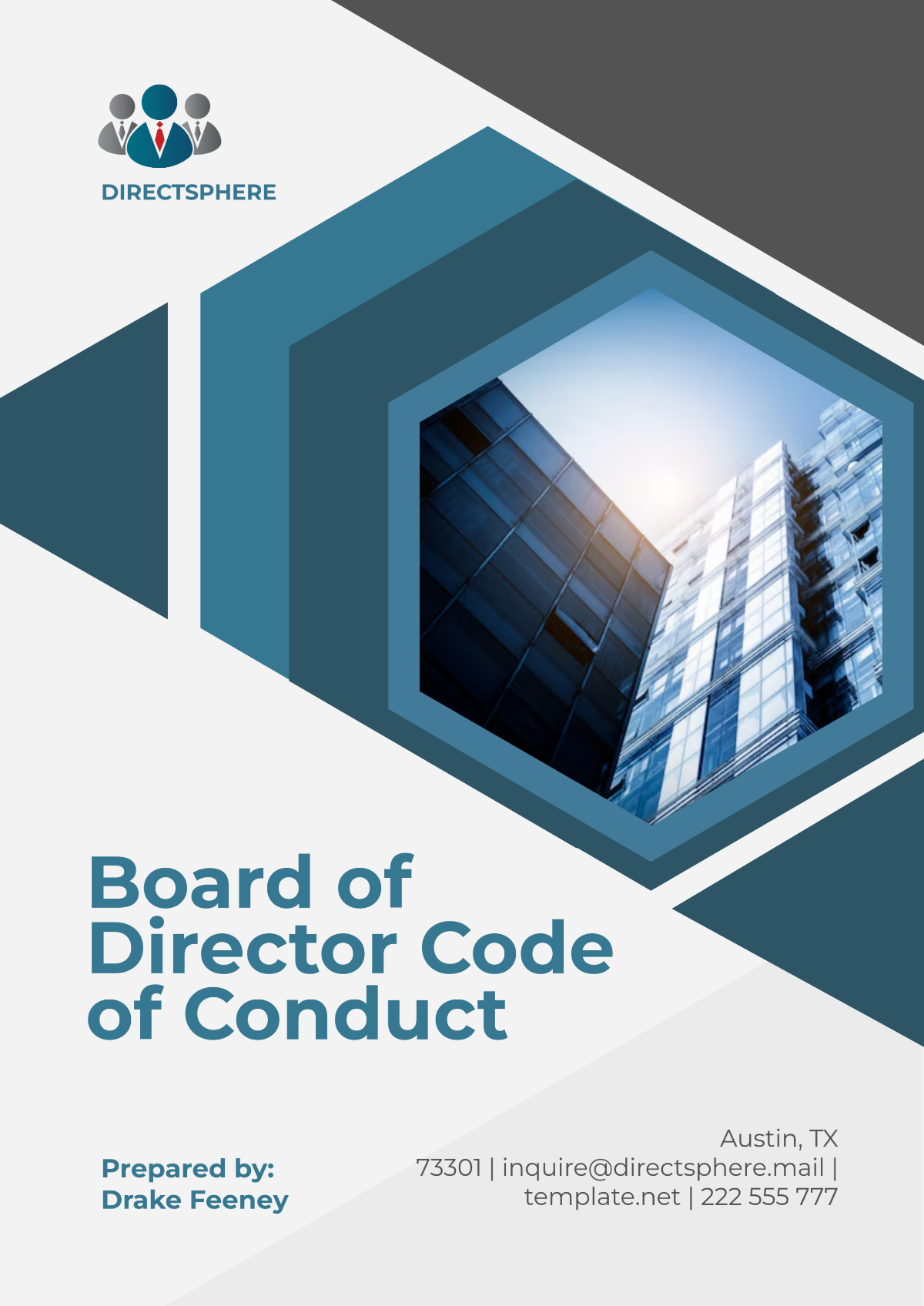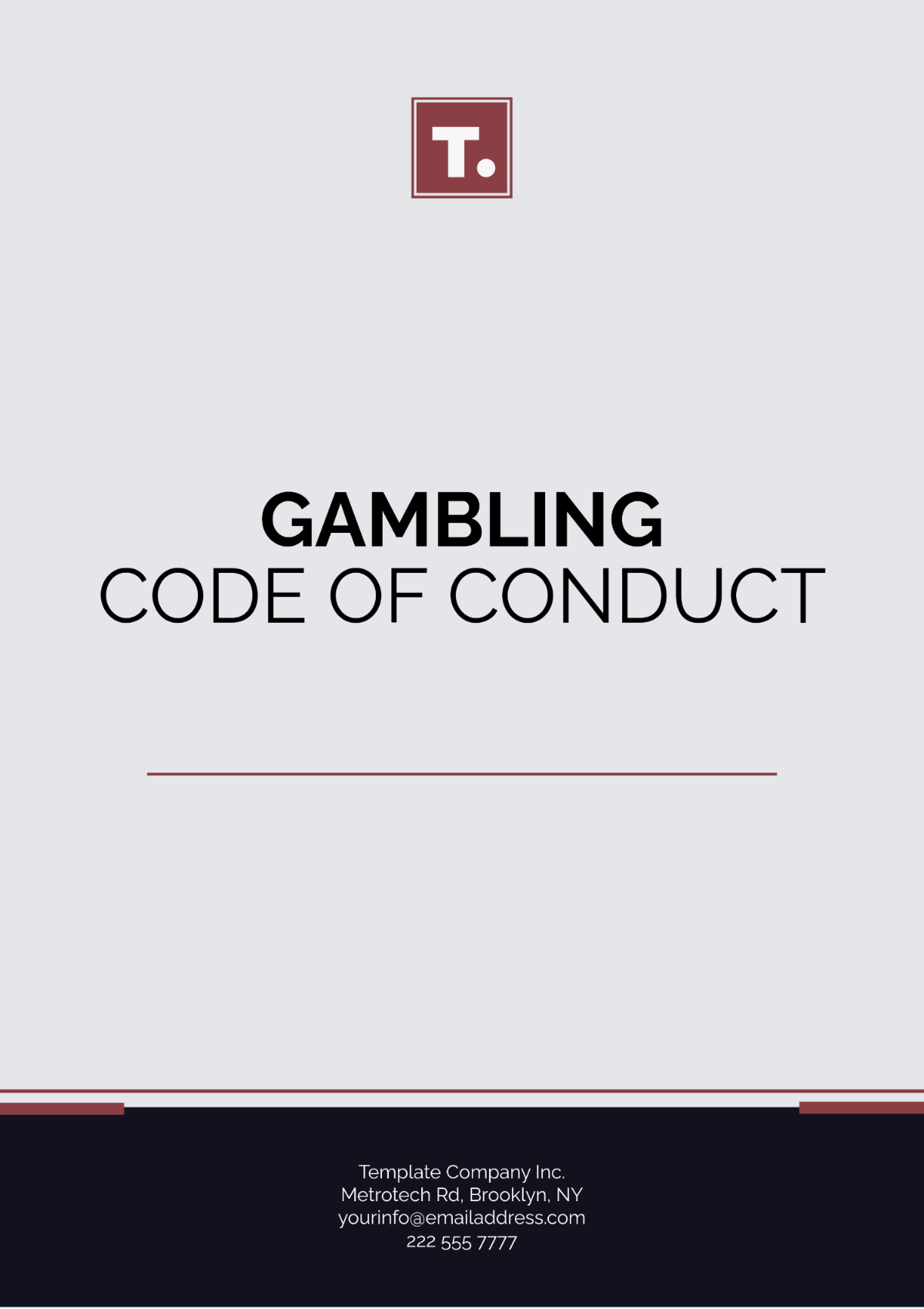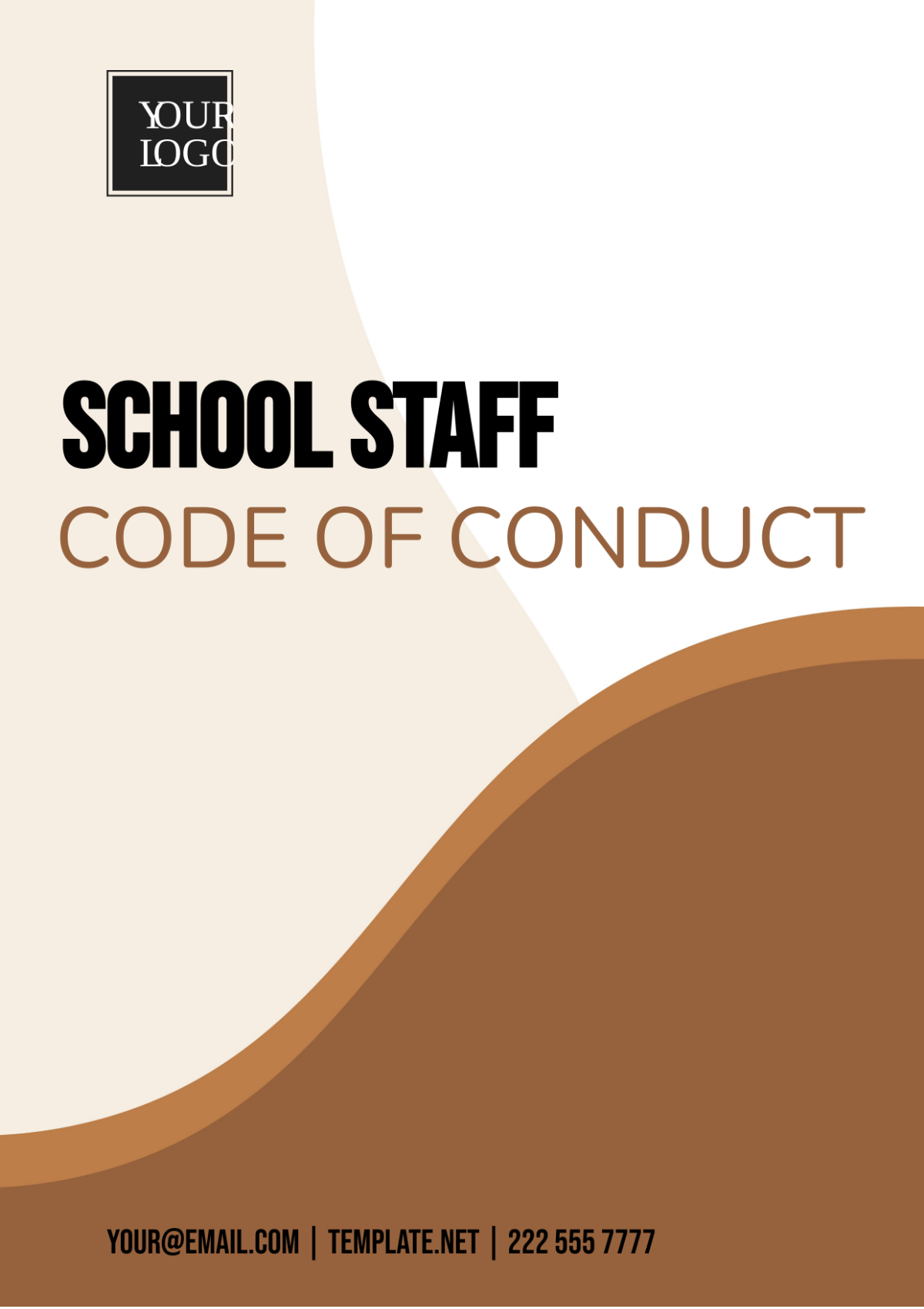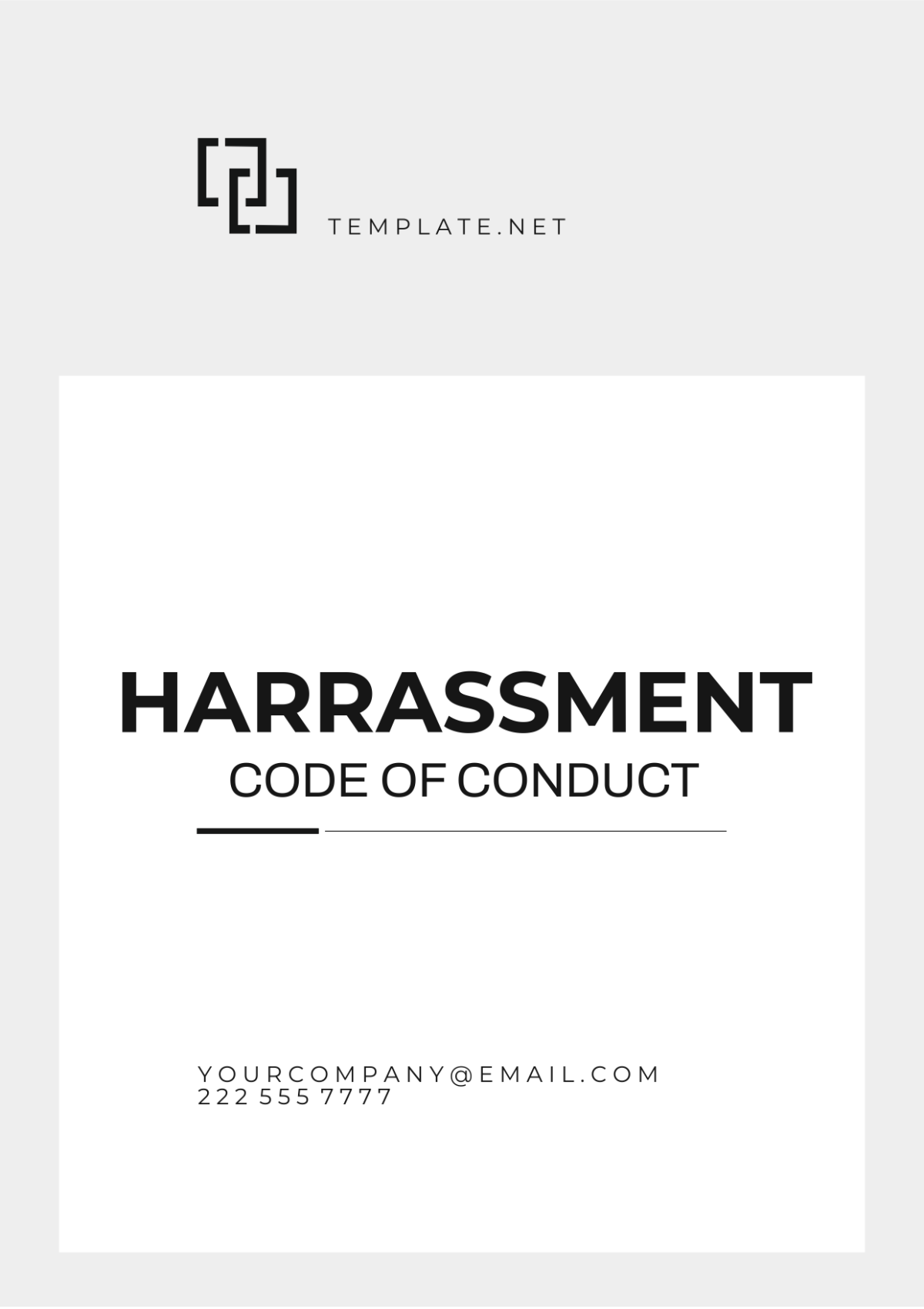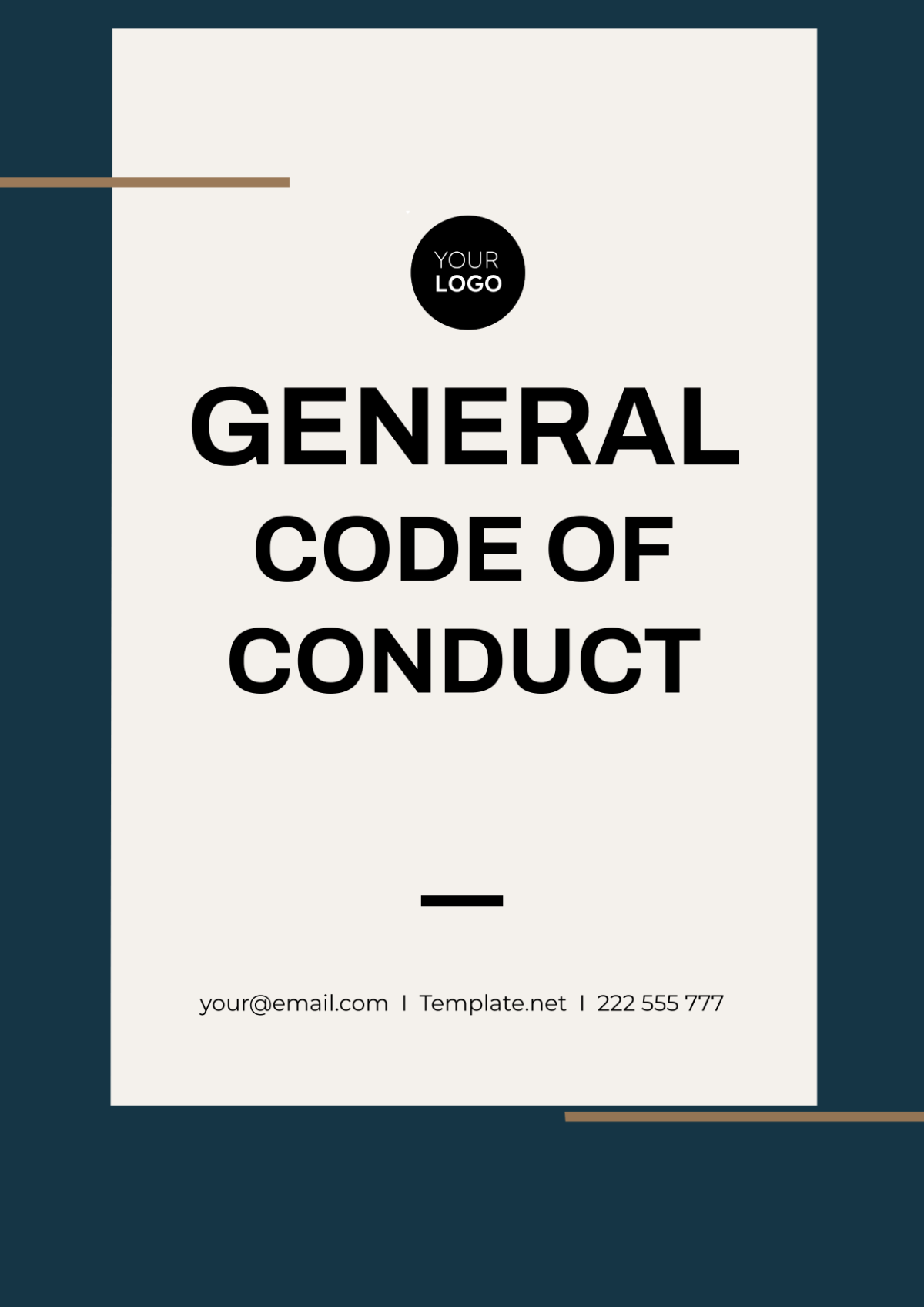COMMITTEE CODE OF CONDUCT
I. Introduction
The [The Community Organization], dedicated to empowering local communities, is committed to fostering an inclusive and welcoming environment for all committee members, volunteers, and stakeholders. This Code of Conduct outlines the standards of behavior and expectations for individuals participating in committee activities. By adhering to these principles, we aim to uphold the values of the organization and promote fair and effective governance.
II. Roles and Responsibilities
A. Committee Members
The organization committee members are expected to actively participate in meetings, contribute expertise, and collaborate with fellow members to achieve the organization's objectives. Whether it's organizing community events or reviewing project proposals, each member plays a vital role in driving positive change.
Each committee member must adhere to the bylaws and policies of The organization, maintain confidentiality when required, and act in the best interest of the organization. Upholding the organization's integrity and reputation is paramount to our collective success.
Committee members shall respect the authority of appointed chairpersons and support their leadership in facilitating meetings and decision-making processes. Collaboration and mutual respect among members are essential for effective governance.
B. Chairpersons
Chairpersons are responsible for setting agendas, facilitating discussions, and ensuring that meetings are conducted in an orderly and efficient manner. Their leadership skills and commitment to fairness are instrumental in maintaining the committee's productivity and cohesion.
The organization chairpersons must foster an inclusive environment, encourage diverse perspectives, and ensure that all members have an opportunity to voice their opinions. Embracing diversity and inclusion strengthens our decision-making and enriches our community initiatives.
Chairpersons have the authority to enforce the Code of Conduct, manage conflicts, and escalate issues to the appropriate channels when necessary. Upholding the principles of fairness and accountability is crucial for maintaining trust and integrity within the organization.
III. Communication Guidelines
A. Respectful Communication
All communication among committee members shall be conducted in a [Professional] and respectful manner, free from harassment, discrimination, or personal attacks. Creating a culture of respect and civility fosters collaboration and strengthens our collective impact.
Members should actively listen to others, acknowledge differing viewpoints, and express disagreement constructively, focusing on the issues rather than individuals. Embracing diverse perspectives enhances our ability to address complex challenges and find innovative solutions.
The organization encourages open dialogue and welcomes feedback to foster a culture of continuous improvement and mutual respect. Transparent communication builds trust and strengthens our relationships with stakeholders.
B. Collaboration and Conflict Resolution
Committee members are encouraged to collaborate effectively, leveraging each other's strengths and expertise to achieve common goals. By working together synergistically, we maximize our collective impact and drive meaningful change in our communities.
In the event of disagreements or conflicts, members should first attempt to resolve issues privately and respectfully. If unable to resolve, they may seek mediation or intervention from the committee chair or designated mediator. Addressing conflicts promptly and constructively minimizes disruptions and maintains focus on our shared objectives.
The organization is committed to resolving conflicts promptly and fairly, prioritizing the well-being and cohesion of the committee and the organization as a whole. By fostering a culture of empathy and understanding, we cultivate a supportive environment where all members can thrive.
IV. Transparency and Accountability
A. Reporting and Record-Keeping
Committee activities, decisions, and discussions shall be accurately documented and maintained in The organization's records, ensuring transparency and accountability. Accessible records enable stakeholders to track progress, evaluate outcomes, and hold us accountable for our actions.
Reports on committee activities, progress, and outcomes shall be provided to relevant stakeholders, including the organization's leadership and members, as appropriate. Transparent reporting builds trust and demonstrates our commitment to responsible governance.
B. Compliance with Policies and Procedures
Committee members are expected to familiarize themselves with and adhere to all relevant organization policies, procedures, and guidelines. Compliance with organizational standards ensures consistency and fairness in our decision-making processes.
Any concerns or potential violations of the Code of Conduct or organizational policies should be reported to the committee chair or designated authority for investigation and resolution. Prompt reporting and resolution of issues safeguard the integrity and reputation of the organization.
V. Enforcement and Consequences
A. Code of Conduct Enforcement
Violations of this Code of Conduct will be taken seriously and may result in disciplinary action, including but not limited to warnings, temporary suspension, or removal from the committee. Upholding the Code of Conduct protects the integrity of our organization and maintains a safe and respectful environment for all members.
The enforcement of the Code of Conduct shall be consistent, fair, and impartial, following established procedures and principles of natural justice. Fair and transparent enforcement ensures accountability and upholds the values of the organization.
B. Appeals Process
Individuals subjected to disciplinary action have the right to appeal the decision by submitting a formal appeal to the organization's leadership or designated appeals committee. The appeals process provides an opportunity for individuals to seek redress and ensure procedural fairness.
Appeals shall be reviewed objectively and impartially, considering all relevant information and ensuring procedural fairness. Fair and thorough review processes uphold the principles of justice and maintain trust in the organization's governance.
VI. Amendments and Review
A. Code of Conduct Amendments
This Code of Conduct may be amended or revised by the organization's leadership as deemed necessary to reflect changes in organizational policies, legal requirements, or best practices. Regular review and updates ensure that the Code of Conduct remains relevant and effective in guiding our conduct and decision-making.
Proposed amendments to the Code of Conduct shall be communicated to committee members and stakeholders for review and feedback before final approval. Inclusive and transparent review processes enable stakeholders to contribute to the development and refinement of our guiding principles.
B. Regular Review
The organization shall conduct regular reviews of the Code of Conduct to ensure its effectiveness, relevance, and alignment with the organization's values and goals. Ongoing evaluation and improvement strengthen the integrity and impact of our governance practices.
Committee members are encouraged to provide input and suggestions for improvement during the review process to enhance the integrity and inclusivity of the Code of Conduct. Active participation in the review process ensures that the Code of Conduct reflects the evolving needs and priorities of our community.
By abiding by this Code of Conduct, committee members contribute to a positive and productive environment within the organization, fostering trust, collaboration, and excellence in governance.
